17:55
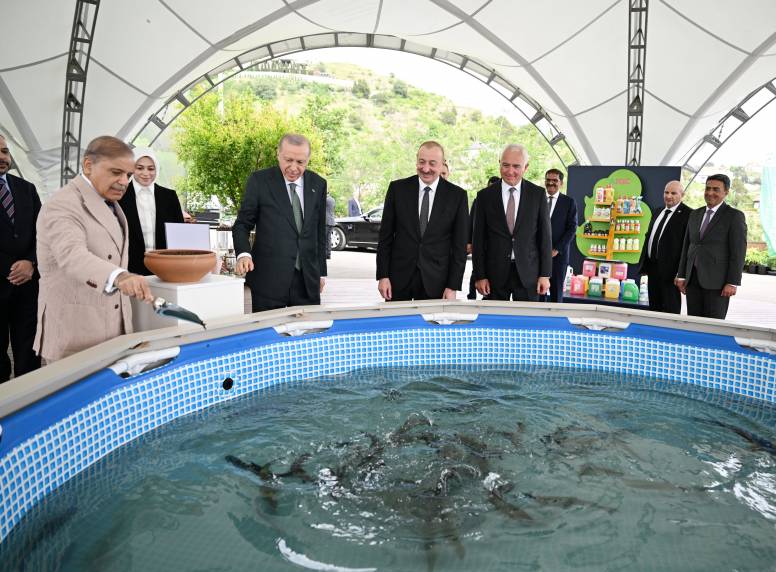
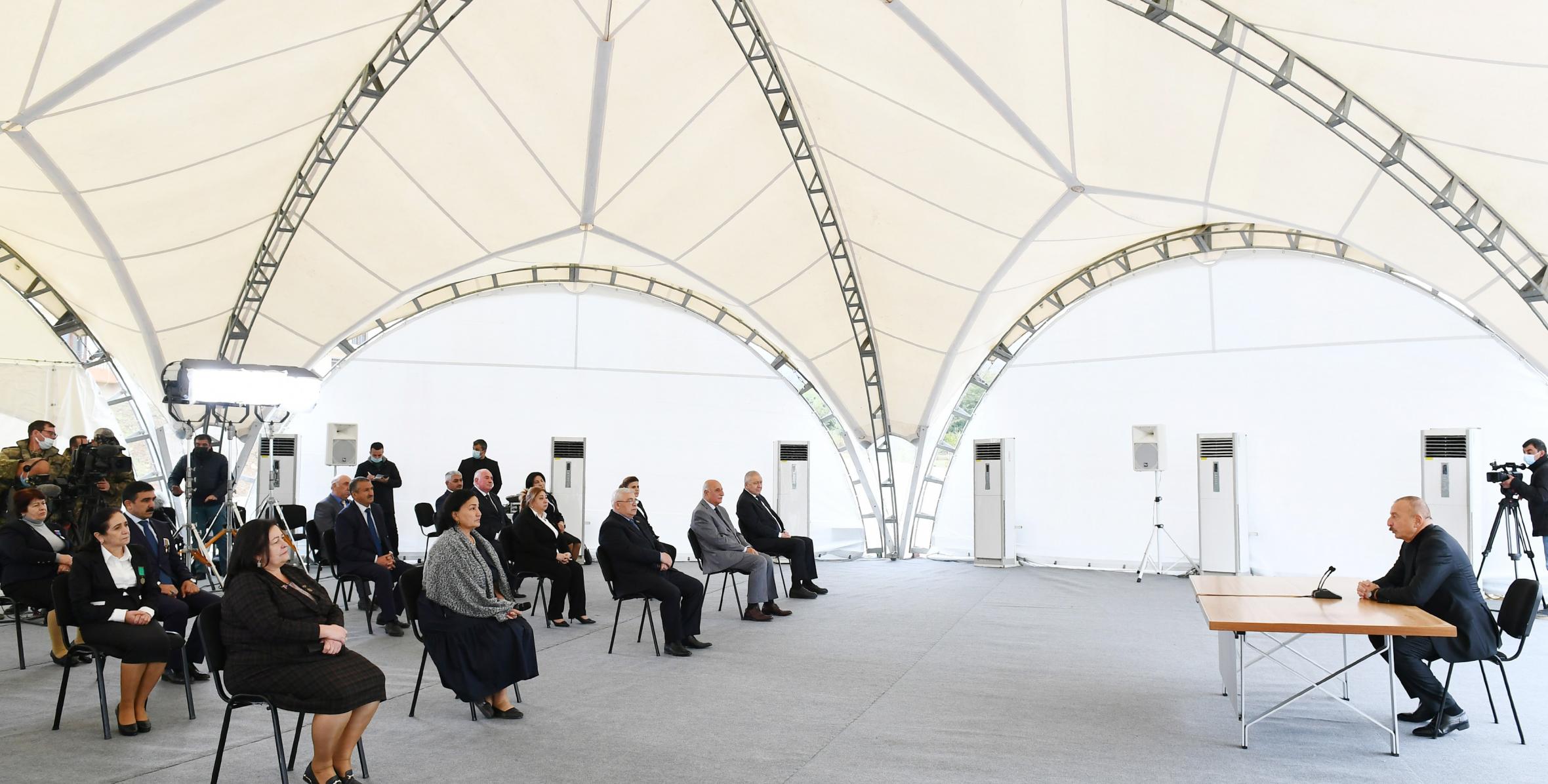
President of the Republic of Azerbaijan Ilham Aliyev has met with members of the general public of Khojavand district.
The head of state addressed the gathering.
Speech of President Ilham Aliyev
- Dear friends, it is the first anniversary of the liberation of Hadrut settlement today. I sincerely congratulate you and the people of Azerbaijan on this occasion. I think that celebration of this day with you here in Hadrut is a remarkable event. After a long break, we have returned to Hadrut - Khojavand. We have returned through fighting, shedding blood and losing martyrs. May Allah rest the souls of all our martyrs in peace! It is at the cost of their blood, lives, the courage and heroism of our servicemen that we have restored historical justice, expelled the invaders from our native lands and returned here. it is a dawn of a new era for Hadrut and Karabakh in general.
The Hadrut operation is one of the most important ones during the Second Karabakh War. This operation was of critical both from a military and strategic point of view. The successful completion of this operation allowed us to achieve our goal of liberating Karabakh. Hadrut’s location in this region is crucial from a strategic point of view, because it is a mountainous area. The hills around the settlement provide control over a vast area, and it was quite challenging to liberate Hadrut from a military standpoint. At the same time, the liberation of Hadrut opened up new opportunities for the implementation of our plans. I must also say that although there were more than 10,000 defections in the Armenian army during the war and they rushed to flee some settlements, they put up strong resistance in Hadrut. The fierce fighting lasted here for several days. Nevertheless, they realized their feebleness in the face of Azerbaijani soldiers and officers and were defeated here as well.
The significance of the Hadrut operation is that the Armenian leadership and the Armenian army did not expect that we would advance towards Hadrut after Jabrayil. They thought that we would move in the direction of Fuzuli. Although they had a large contingent based in Hadrut, they did not expect us to come here. From a military point of view, the liberation of Hadrut required a great deal of self-sacrifice and professionalism. By conducting this operation, we once again showed our strength to Armenia and the whole world. We have shown that no one and nothing could stand in our way and that we would liberate all our lands at any cost.
The Azerbaijani public is well aware that there was a lot of false information in the Armenian media about the Hadrut operation. After we had already cleared all the mountains around Hadrut of the invaders, it became clear that the liberation of this settlement was simply a matter of time. We were determined to liberate the settlement with minimum losses, and we succeeded in doing that. The Armenian leadership and the Armenian defense ministry were claiming that the Armenians were still in control of Hadrut. They claimed that they had allegedly resorted to another tactical retreat and already returned to Hadrut by forcing the Azerbaijani soldiers out of Hadrut.
Seeing all these lies, I was simply amazed because it was crystal clear that Hadrut was already ours. I ordered that the Azerbaijani flag be raised in Hadrut to put an end to these lies by the Armenians. After that, after Azerbaijani soldiers and officers had raised our state flag in Hadrut and reported to me, the Armenian official propaganda admitted that Hadrut was under the control of the Azerbaijani Army.
It demonstrates yet again that the Armenian propaganda was based on lies during the occupation, during the war and in the post-war period. Their history, their past, their statehood and their mythology are nothing but fake. Armenians of the world have simply created the false impression in the countries where they live that the Armenian people have allegedly lived on these lands for centuries. The Armenians were resettled to Hadrut from Iran in the 19th century. Everyone knows that. There were no Armenians here prior to that. They fabricated the history and continue to falsify present realities. During the war, we heard many lies from the Armenian authorities. There was so much false, so much absurdity coming from their Ministry of Defense – it is probably worth changing its name to the ministry of falsehood – that the international experts and we were simply startled. The extent of lies about Hadrut had reached its peak. The liberation of Hadrut caused a profound moral and psychological shock in Armenia.
First of all, because they had believed that the Azerbaijani Army could never liberate Hadrut. Secondly, Hadrut was the administrative center of Hadrut district of the former Nagorno-Karabakh Autonomous Region. It was the center of the region. The Armenian leadership and the Armenian public had realized we made no distinction between our territories – whether it was Fuzuli, Jabrayil, Zangilan, Hadrut, Shusha or Sugovushan. The liberation of settlements of the former Nagorno-Karabakh Autonomous Region from the occupiers showed Armenia that we would not stop until Armenia undertakes to withdraw from all our lands, and we didn’t stop. After Armenia was ready to sign the act of capitulation and after we received information about that, we said that we would stop, and we did and returned the remaining districts by political means.
Therefore, the Hadrut operation was of great strategic, historical, moral and psychological importance. Today, the former Hadrut district of the former Nagorno-Karabakh Autonomous Region is completely free of the occupiers. After the war had ended, a special sabotage group was sent to some villages of Hadrut district from Shirak region of Armenia. In late November, they crossed the Lachin corridor and entered these areas. As you know, they were disarmed and arrested. Those who did not commit crimes were returned, while those who committed crimes and saboteurs had to answer in court. That is to say that about 20 days, after the war had ended and Armenia signed the act of capitulation, they tried to attack Hadrut again. But Azerbaijan’s Armed Forces took the necessary steps.
According to the administrative-territorial division of Azerbaijan, Hadrut settlement is a part of Khojavand district. By merging Hadrut and Martuni districts, which were once a part of the former Nagorno-Karabakh Autonomous Region, we merged them and created Khojavand district. I must also say that about 55-60 percent of the former Martuni district has been liberated from the occupiers and Azerbaijani citizens will return to those regions.
Looking at Hadrut settlement, everyone can see again that the Armenians did not consider these areas as their native land. After all, notice what state Hadrut is in. You have seen Hadrut, you have lived here, you have been here, and you have lived in nearby villages. There are representatives of several villages here. Nothing has changed here for almost 30 years. Two buildings have been constructed for the military and one school has been renovated. All other buildings remain the way they were. In other words, there was ubiquitous misery. They did not lift a finger. Notice the condition of roads and buildings. It begs a question as to how someone can live is in these buildings. One is tempted to ask a question: in 30 years the Armenian state has received millions of dollars in funds from the Armenians living abroad. They ran marathons every year, raising more than a hundred million dollars a year. Multiply that by 30 years and see how much money this adds up to. I am visiting all these regions now, I have been to Hadrut, many villages of Hadrut, the villages of Chanagchi and Sighnakh of Khojaly, Azikh, Tugh, Susanli and other villages – are of them all in a dilapidated condition. Our construction experts visited some villages and concluded that 95 percent of the buildings is in disrepair. But where did these billions go? It turns out that the Armenian leadership, its former leaders simply deceived the rich Armenians of the world, organized marathons and raised that money only to spend it the way they pleased.
They have a large foundation – Hayastan. For those who do not know, Hayastan actually means Armenia. I do not know why Hayastan is called Armenia in English and Russian, because Armenians call themselves Hays and their country is Hayastan, not Armenia. This is the work of historians. I know the reason for this, but Azerbaijani historians should probably do more research. As I said, this Hayastan foundation has probably raised several billion. Also, wealthy Armenians living in the United States have created their own special foundations for their family members. At least a few billion dollars have been raised in the last 30 years, and the fate of that money is unknown. If you look at all the liberated places, even where the Armenian population lived, there is no sign of development there. Look at the state of Shusha. They tried to portray Shusha as their city to the whole world, and they are still doing that today. If it was your city, then why is it is such a deplorable state? There is not a single new building in Shusha. There are two relatively new buildings. One belongs to the leader of the separatists and the other to another rich Armenian living abroad. They are villas, their own houses. There is not a single building there. All of the 17 springs in Shusha have been dried up. Well, if this is your city, then why is it in such a state?
Some of you here are from Tugh village. I will take you to Tugh village and you will see what state Tugh village is in now. I was shocked when I was there. They organized various festivals in Tugh every year. Visitors were attracted from abroad and the impression was created that it was a very developed place. It is in a run-down state, the school has collapsed, a community center has fallen apart, and almost all the buildings are obsolete. That is the true face of Armenian occupation.
They occupied our lands, subjected the Azerbaijani people to ethnic cleansing, destroyed all our houses, buildings and historical sites, but did not build a life for themselves. They wanted to continue the occupation for another 30 years. Both the international community and those involved with this matter turned a blind eye to that. We have put an end to it. I want to say again that the liberation of Hadrut a year ago can be considered a historic event. After that we continued our victory march in different directions. One direction was the direction of Fuzuli. Less than 10 days after the liberation of Hadrut, we liberated Fuzuli. The other direction was Shusha. The historic Victory Road also passed through the forests of Hadrut. So after the liberation of Fuzuli on 17 October, Armenia suffered even more serious blows because Jabrayil, Hadrut and Fuzuli, i.e. large settlements, were already liberated from occupation and everyone knows the further course of the war.
We will restore Hadrut. The master plan of Hadrut, its initial version has been submitted to me. I had many objections, so I did not bring that plan today. It needs to be elaborated further. But I believe that our architects will prepare a new plan in the next month. It will be submitted and we will approve it.
Today, the restoration of Hadrut has begun. The foundation of the highway has been laid. The four-lane Hadrut-Jabrayil and Hadrut-Fuzuli highways will be built, the Hadrut substation will be built. Its foundation stone has been laid and the construction of a mosque in Hadrut has begun. I have laid the foundation of the mosque too, and I think this is a historic event. In Soviet times, most of the people living in Hadrut were Armenians. They, of course, would not allow the construction of a mosque here. We all know that it was impossible to build a mosque in the Soviet era as a whole – in the era of atheism.
We are both restoring historical justice and showing our attachment to our religious and spiritual values. At the same time, the substation and road are among the key infrastructure projects, and other projects will be implemented as well. The historical part of Hadrut will be rebuilt. There are already preliminary images of the repaired buildings. At the same time, this messy landscape within the settlement is quite frustrating. It is hurts me to see this town in this condition today. Therefore, we are determined to turn Hadrut into an international culture and tourism center.
The main direction of the development of the settlement and Khojavand district will be agriculture – crop production, animal husbandry and viticulture. There were viticulture traditions here. There are very conducive conditions for viticulture here. Along with agriculture, it will be a very popular tourism center. The tourism potential of Khojavand district is enormous. It has a very rich nature – it has mountains, forests, rivers – a place like paradise. Historical sites, bridges, as well as the famous Azikh cave and the Taghlar cave – these are located here. The Armenians also wanted to Armenianize the Azikh cave. Can you imagine the degree of ridiculousness? They claimed that Armenians lived in the Azikh cave. One does not know whether to laugh at this or not. It was Azerbaijani archaeologists who discovered the Azikh cave. Those archaeologists did a lot of research, while Armenians simply brought scientists from several countries of the world for propaganda and staged a show here. The cave was severely damaged. Last time I was here, I went up to the entrance of that cave. I would like to invite Azerbaijani and foreign investors to build tourism centers and hotels in these places, which are so rich in historical sites. There are only a handful of such beautiful places in the world as Khojavand and Hadrut settlement. Pristine nature is almost intact here. Armenians cut down our forests in Kalbajar, Lachin and other places. About 60,000 hectares of forest in Kalbajar, Lachin and Zangilan districts have been completely destroyed, cut down and burned. It also happened in Jabrayil, but not here. Therefore, nature is almost untouched here. Also, there was virtually no population here. Hadrut may have been inhabited by a thousand people. There was no population. Therefore, we must preserve the pristine nature of this region. When our citizens return here, they should, first of all, pay attention to the protection of this nature, and, of course, the state will fulfill its responsibilities.
We have major plans related to the future development of Khojavand district and Hadrut settlement. We started implementing these plans today. Today, the people of Khojavand have come to their native lands and these visits will be more frequent.
I once again congratulate you on this historic day and wish you good health and continued success. Thank you.
X X X
President Ilham Aliyev said:
- First of all, I am grateful for the kind words. Echoing your words, we should also acknowledge the work and selflessness of the doctors during the war. Indeed, the doctors worked tirelessly day and night, risking their lives in those difficult conditions. Doctors are one of the reasons why the number of our martyrs had been down. As soon as the war started, the first of my orders was to provide the highest level of service to the wounded. The wounded must be immediately be evacuated from the battlefield, put in ambulances and brought to the nearest medical center. I can say that both doctors and representatives of executive authorities, as well as soldiers, often put their lives at risk taking their wounded comrades off the battlefield and putting them at the disposal of doctors.
If you look at the geography of our medical centers in recent years, you will see that special attention has been paid to the frontline, the areas close to the line of contact. It was no coincidence. The war was imminent. As I mentioned earlier, I was saying that the lands would be liberated from occupation. I was saying this, I believed in that and I knew that it would happen. Of course, we did not want bloodshed. We wanted our lands to be liberated peacefully. But we ran out of patience and were comprehensively preparing for the war – in the economic sphere, in army building, logistics and, at the same time, in the field of healthcare. Therefore, for instance, we have established two large medical centers in Fuzuli district near the line of contact. We have established large medical center in Yevlakh, then in Goranboy, Aghdam and Barda. I think that the treatment of our wounded servicemen there had saved many lives. Therefore, I would like to express my special gratitude to the doctors and to you personally. As soon as the war started, you volunteered to go to the war zone. Indeed, Aghdam district was the most difficult, and since it was close to the line of contact, the Armenians constantly fired at our villages. In the April battles, the Armenian armed forces fired at Aghdam the most. The highest number of destroyed houses was in Agdam.
Speaking of victory, of course, we must emphasize the solidarity of our people. The people of Azerbaijan stood behind our Army and rallied around me. They had put their faith in us, and were absolutely confident that we would win a historic victory, and this is exactly what happened. Azerbaijan has won a historic victory. There will be many books and articles written about this war, and participants of the war will share their memories. But as someone in charge of all this work, as Supreme Commander-in-Chief, I was further convinced how great the people of Azerbaijan are. As we took measures to set up shelters in areas close to the line of contact, the people volunteered to help. The supply needs of our army were fully met and there were no shortages. But people were always eager to lend a hand. • Young people in their thousands rushed to military recruitment offices volunteering to join the fight. Some were told that there was no need and that had hurt their feelings. I have received so many letters saying that they wouldn’t call me up and asking me as Supreme Commander-in-Chief to allow them to join the fight. The wounded stood up and went back to fight. Not a single person defected, not a single person. Notice that we fought for 44 days, and some of the battles were fierce, especially at the first stage. When we had to break through the line of contact, our people were literally facing death. That is the reason for the victory.
Of course, along with all other factors, our preparation was systematic. Long-term comprehensive preparations were made – in economy, international relations, army building. Patriotism and hatred of the enemy were in spotlight. These preparations culminated in a great Victory. The Azerbaijani people, the millions of Azerbaijanis living in Azerbaijan and abroad are rightfully proud of. We are all proud.
Meetings with former IDPs are now completely different. As you may know, I have met with IDPs several times a year since 2003, both at the opening ceremonies – because more than 100 settlements have been built and I have inaugurated every single one of them – and at other events. In recent years, I have seen that their hopes were dashed, which was natural. How many years can one wait? The Minsk Group traveled back and forth for so many years, made suggestions that the Armenians rejected. Frankly speaking, we were deceived for many years. I could not tell them that. Even during the war, when I gave many interviews, I could not talk about our plans in full because it was a military secret. Our primary objective was to win a complete victory and raise our flag in Shusha. I can say now that this task was set from the first day of the war, and we have achieved that task.
I understand the suffering of the IDPs very well. I am probably someone who has been in contact with the former IDPs the most in Azerbaijan. In order to live up to their hopes, to fulfill this historic mission before them and to return them to the land of their ancestors, we had to mobilize all our resources under the slogan “There is no retreating even if we die!” We had to charge with that slogan and so we did. Today, there is no such thing as an IDP. Today, former IDPs are preparing to return home. This is the first visit to Khojavand and there will be more such visits. Just as we finished the war in a short time, we will try to finish the restoration work as soon as possible, so that you can return to this heavenly place. Every location is a paradise for us. The people of Azerbaijan will live in the liberated lands forever.
I congratulate you once again and wish you good health and success.
X X X
President Ilham Aliyev: Hello hero, how are you?
Resident: You gave me the title of a National Hero.
President Ilham Aliyev: Yes, I did. You deserve it.
Resident: May Allah grant you a long life! May Allah grant you strong health!
President Ilham Aliyev: Thank you! Thank you very much!
Resident: Hello, Mr. President.
President Ilham Aliyev: Welcome!
Resident: Thank you for returning me to Tugh, for returning me to my home. Thank you.
President Ilham Aliyev: Now we will go to Tugh now.
Resident: Mr. President, thank you very much, we are proud of you.
Another resident: I am a student of Baku Higher Oil School. On behalf of all the students, I want to say that we are all proud of you.
President Ilham Aliyev: Thank you, and please convey my regards to your fellow students. Thank you very much.
This can be a great tourism center. There is also Fuzuli Airport now. We are now building a road here from Fuzuli. It will be a 20-minute drive along a four-lane road from Fuzuli to Hadrut.
Resident: Very good roads are being built, Mr. President.
X X X
Together with representatives of the Khojavand public, the President of Azerbaijan departed to Tugh village.
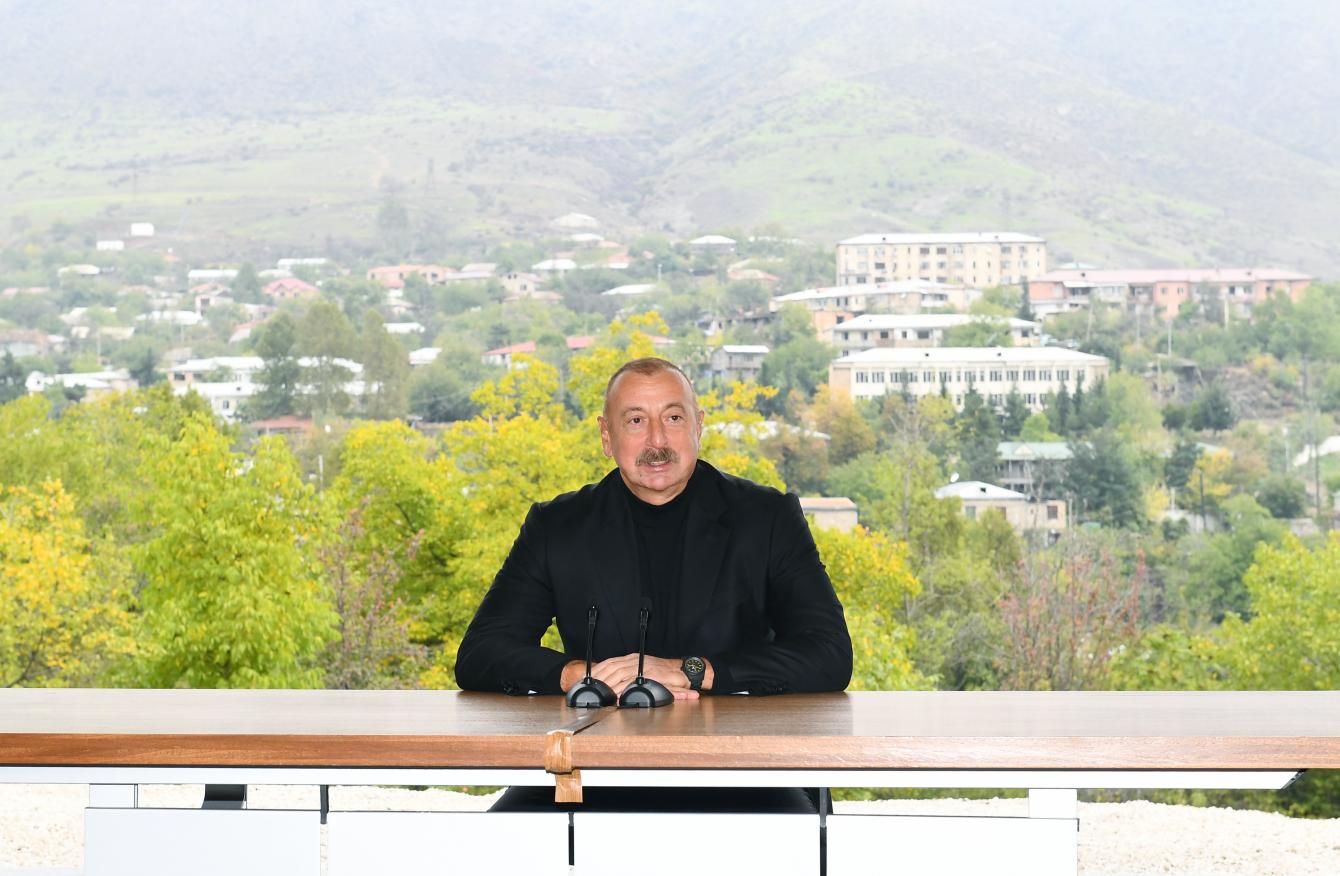
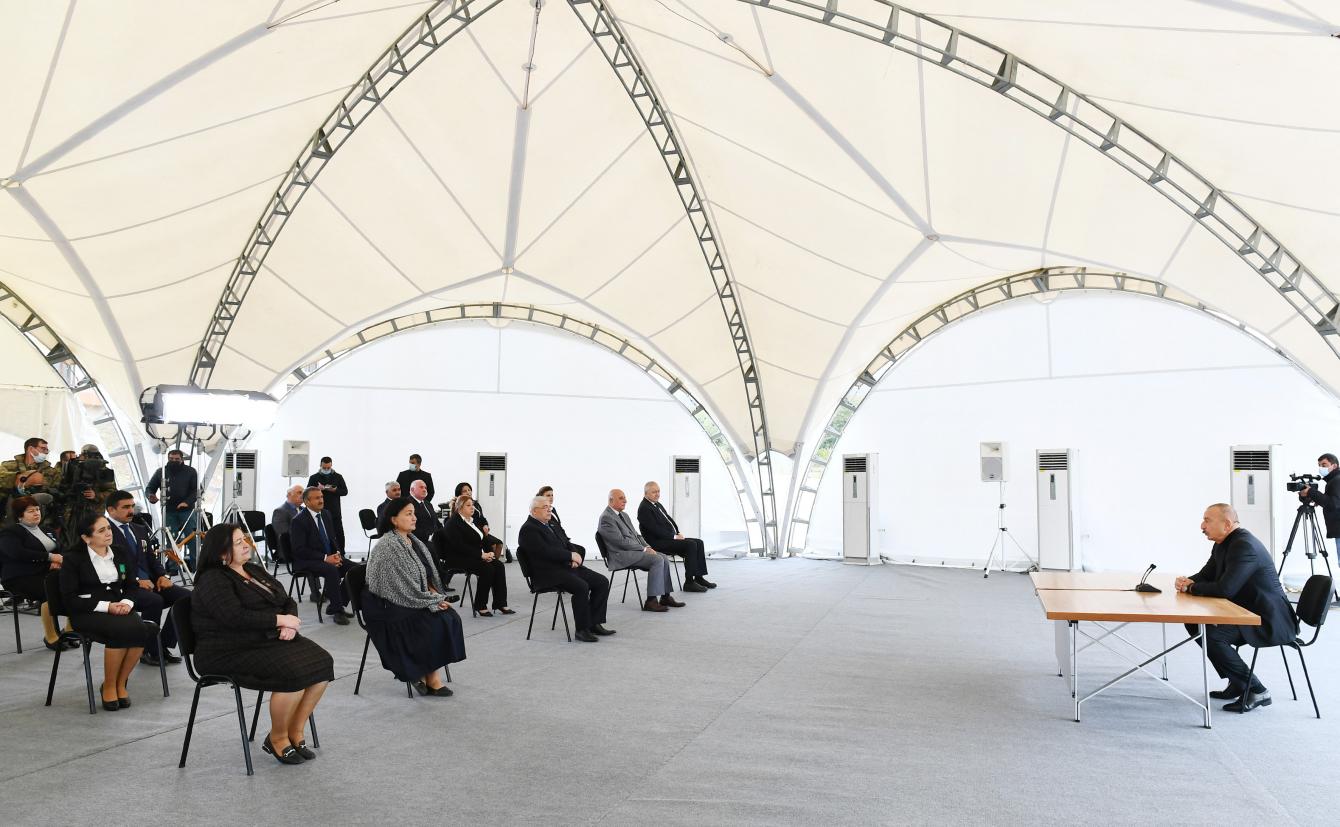
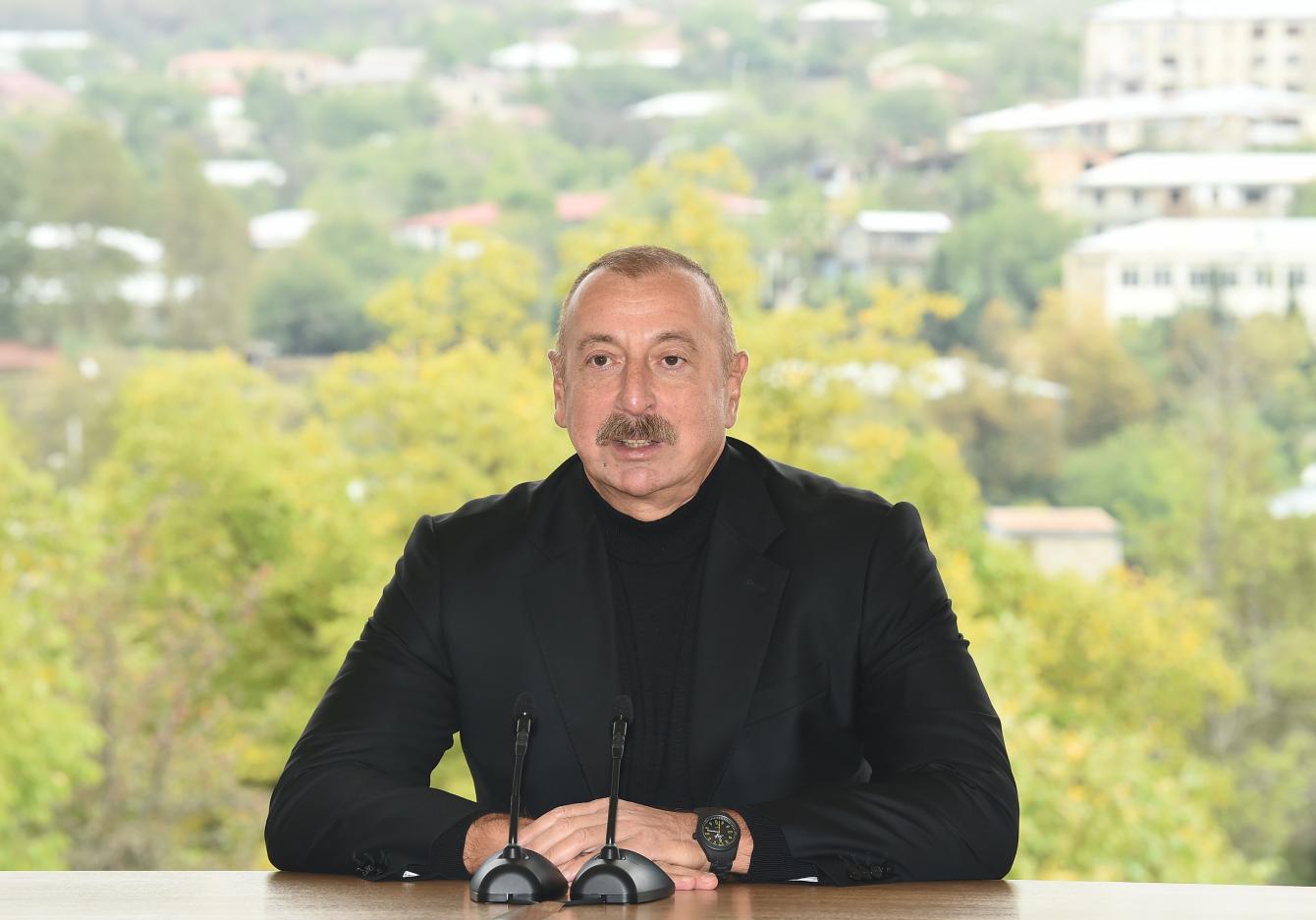
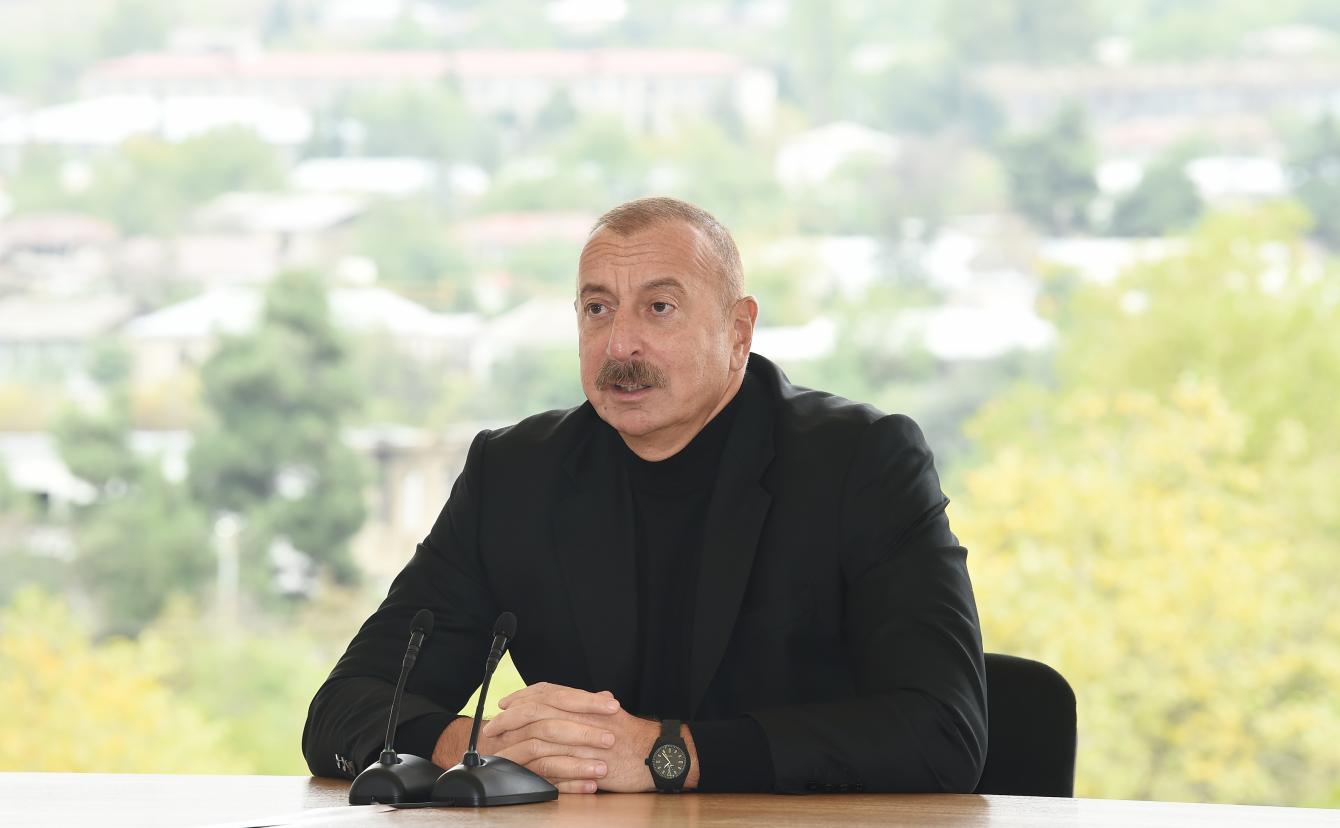
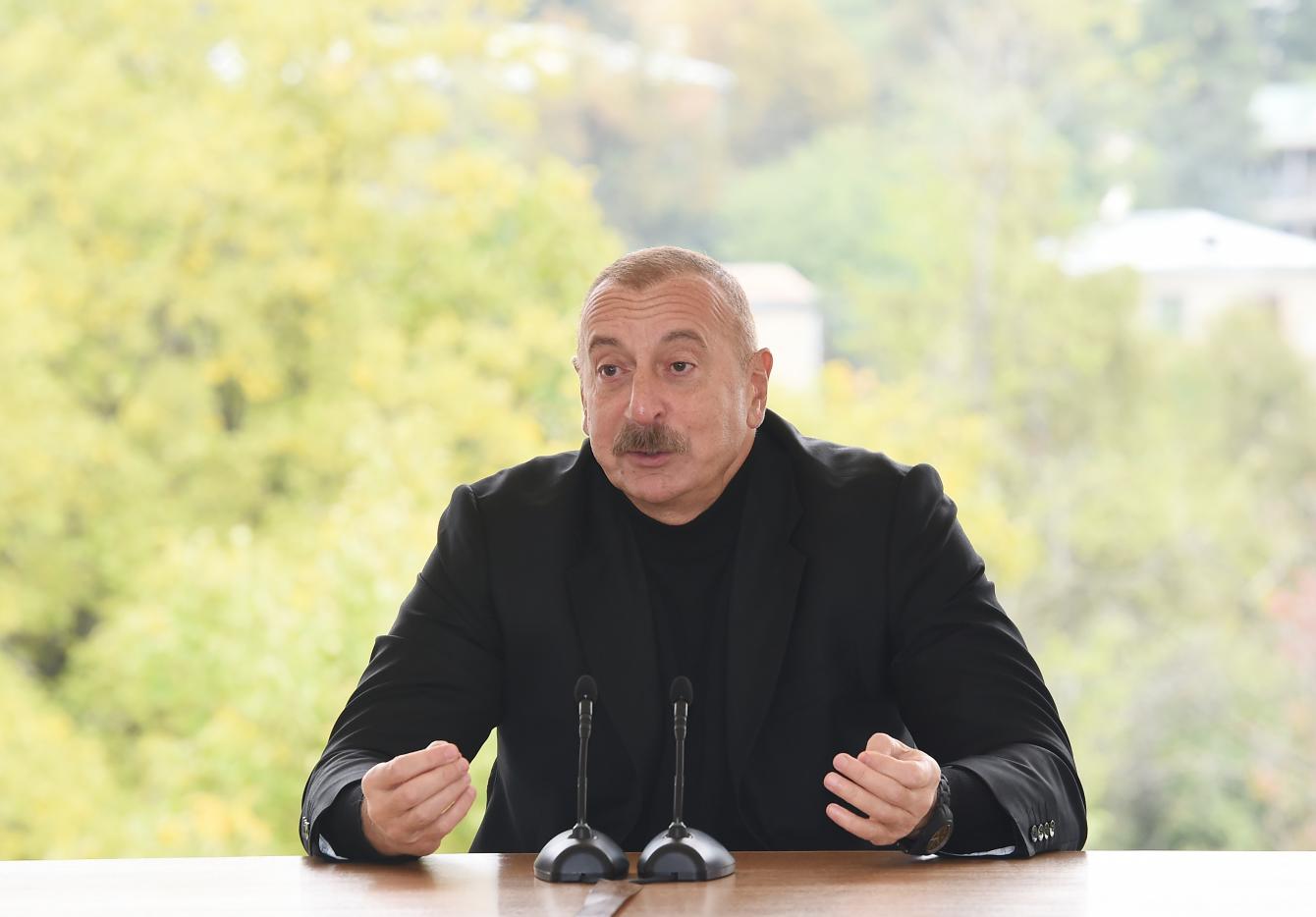
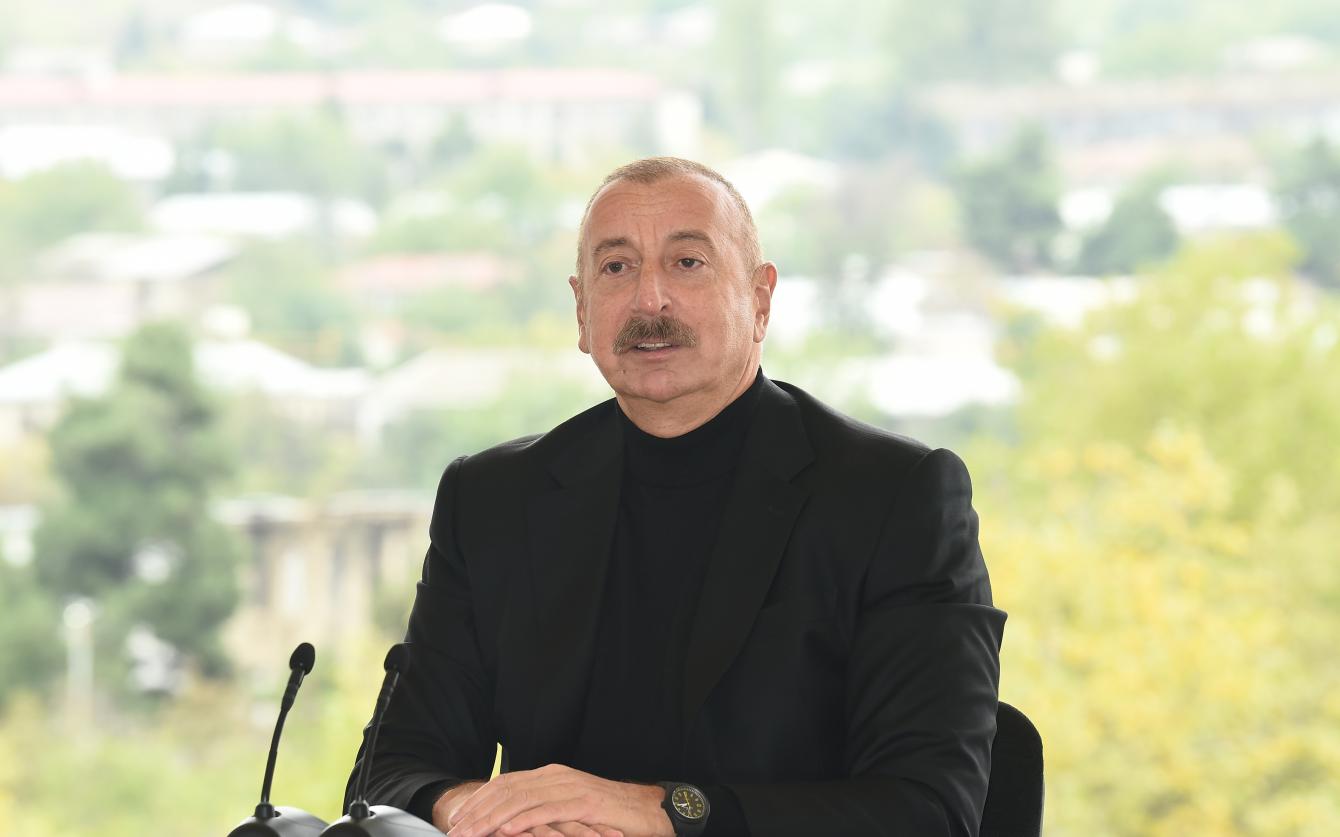
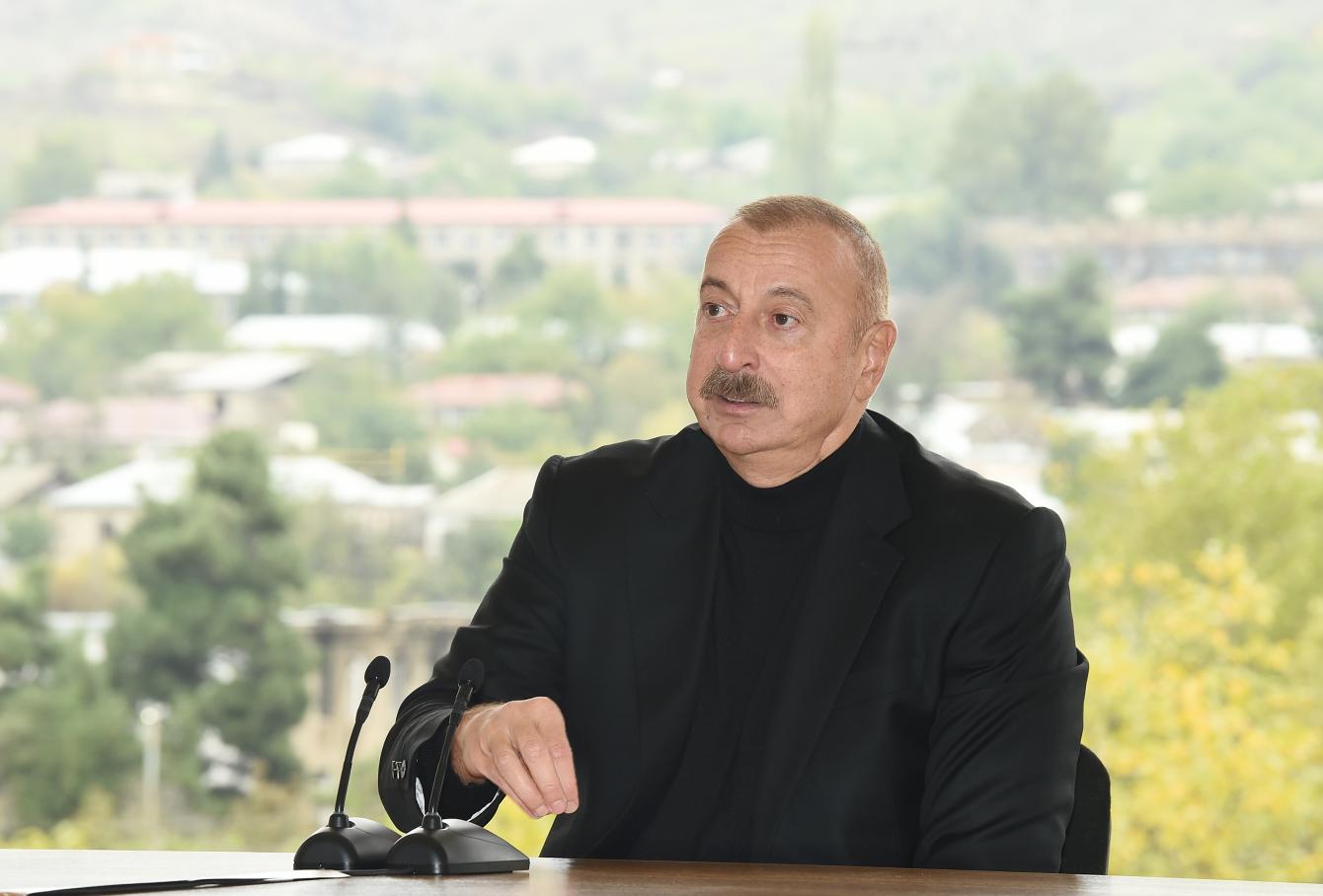
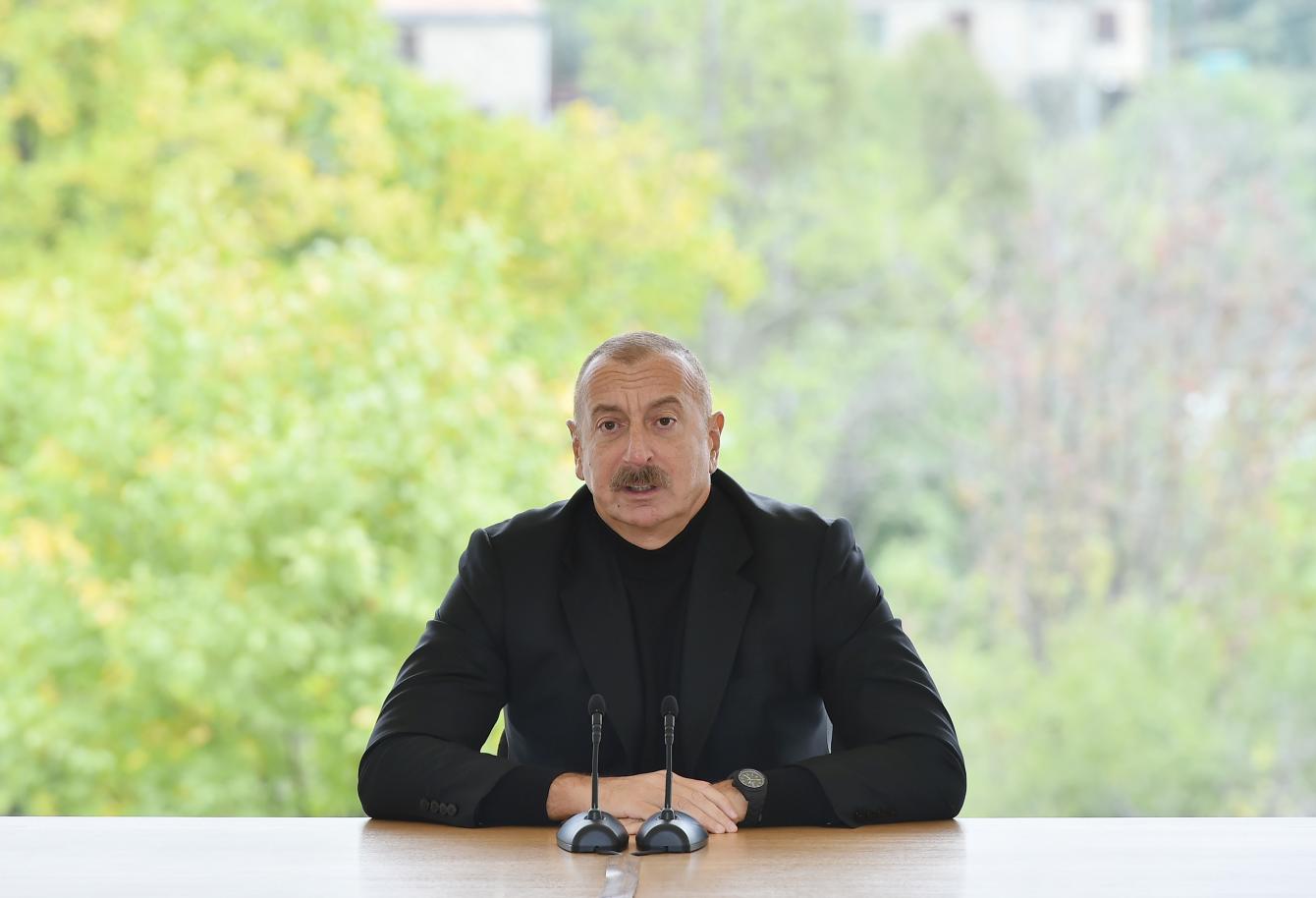
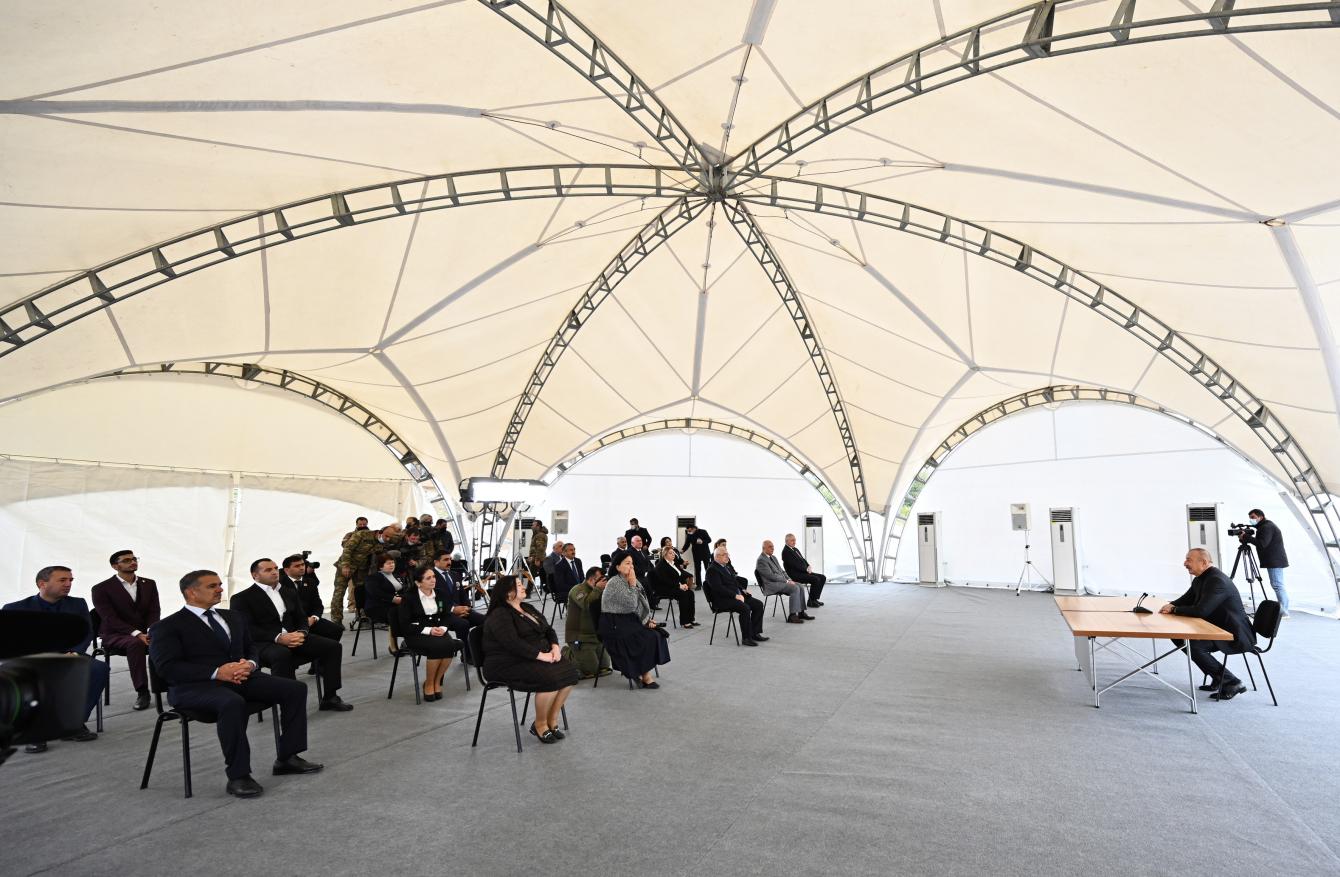
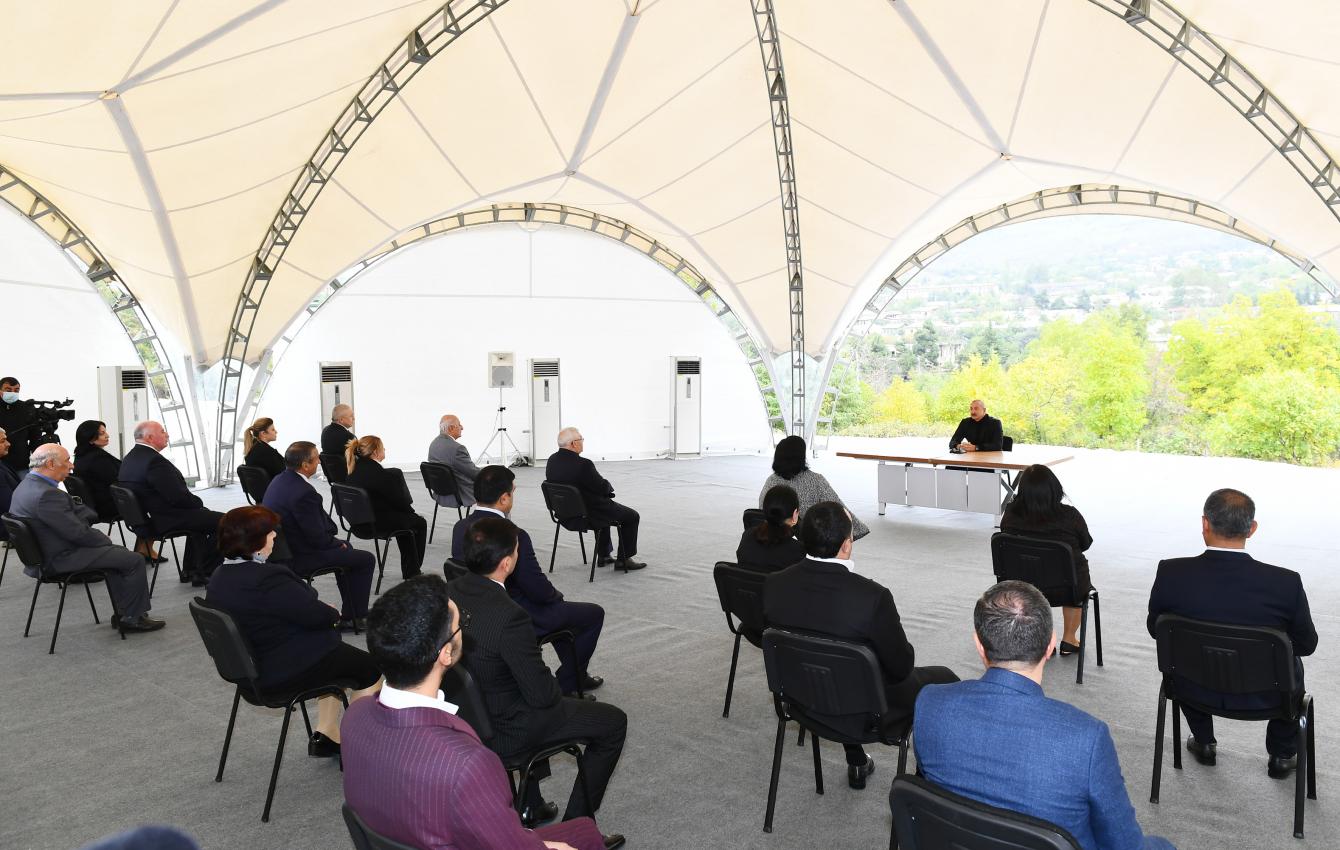
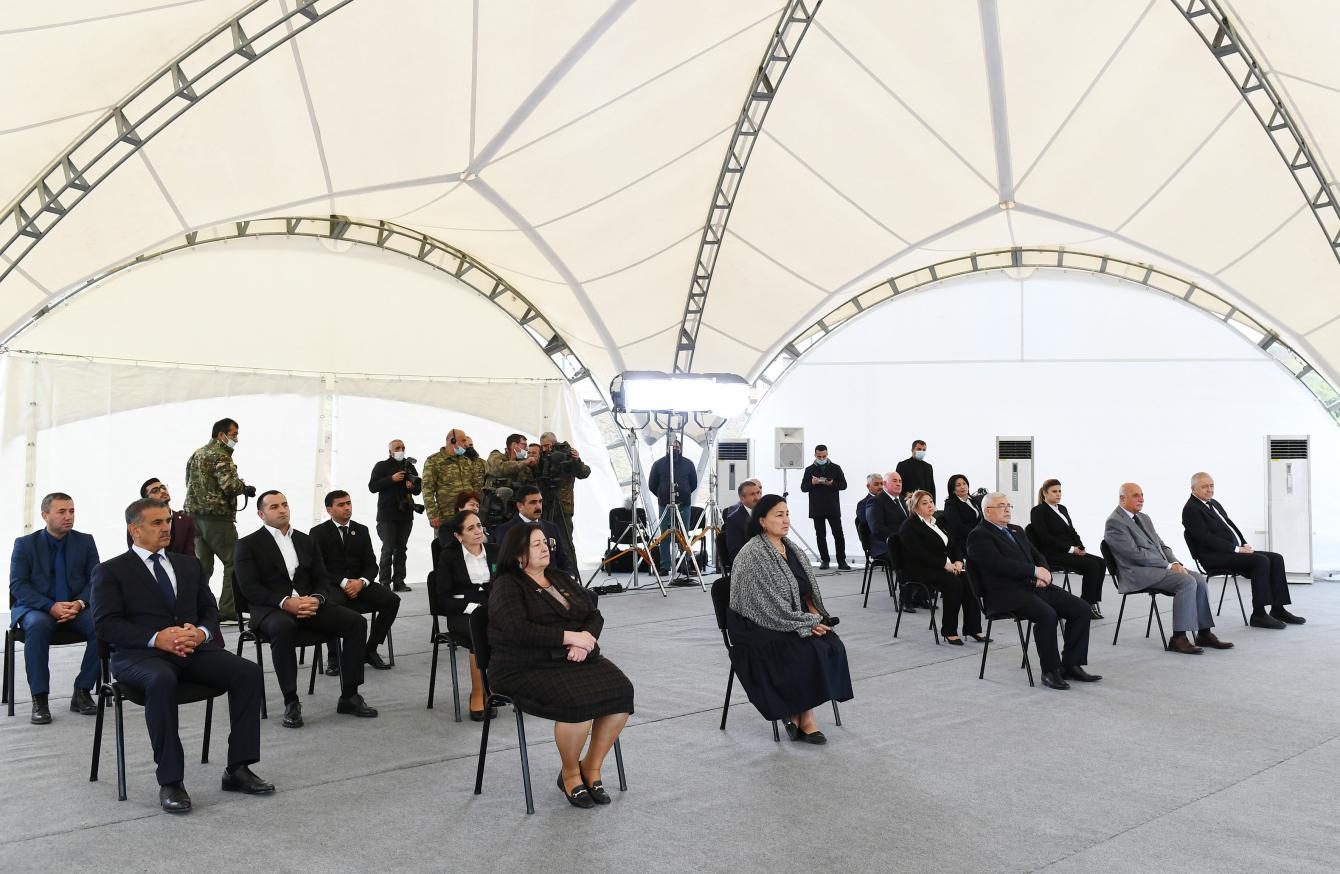
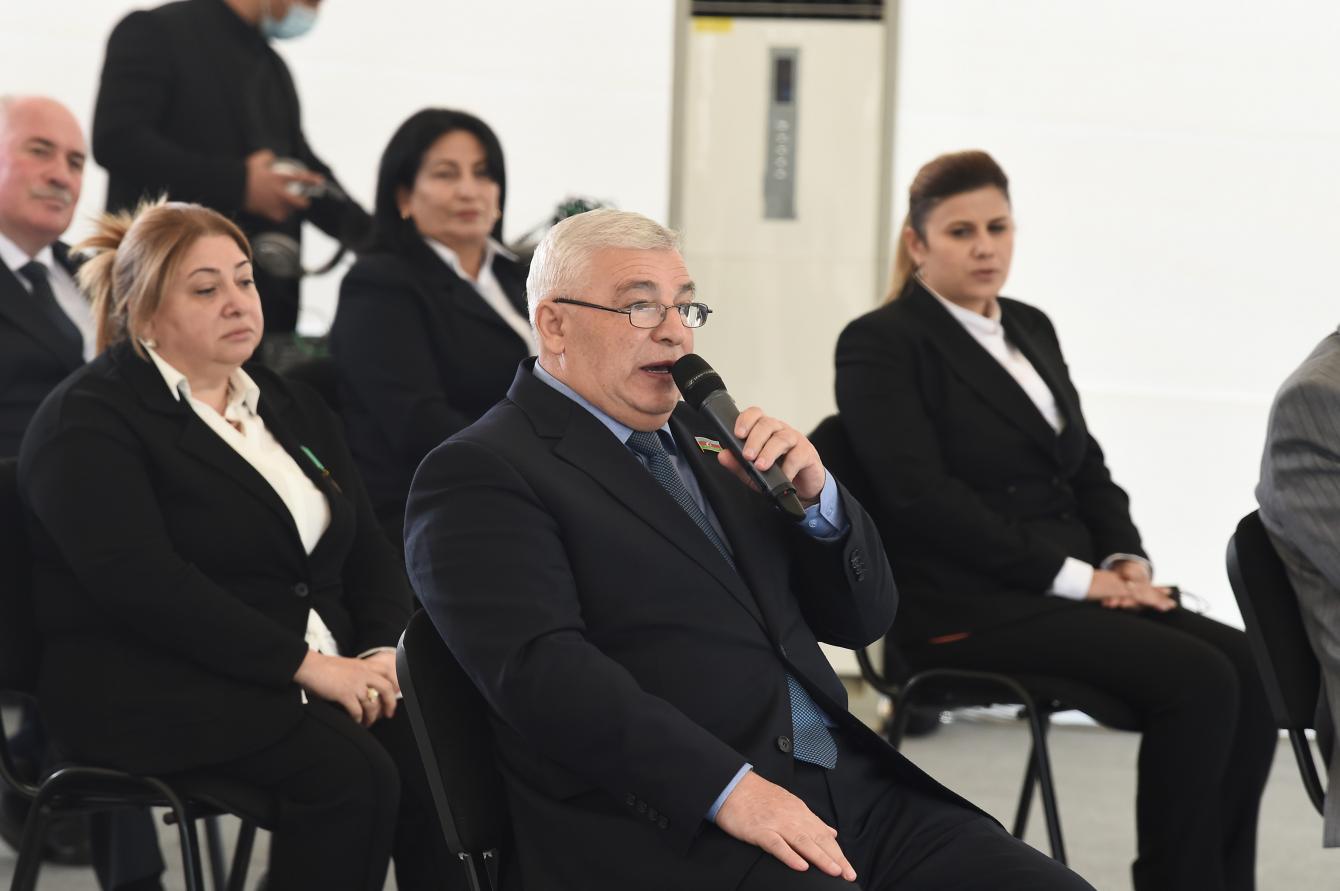
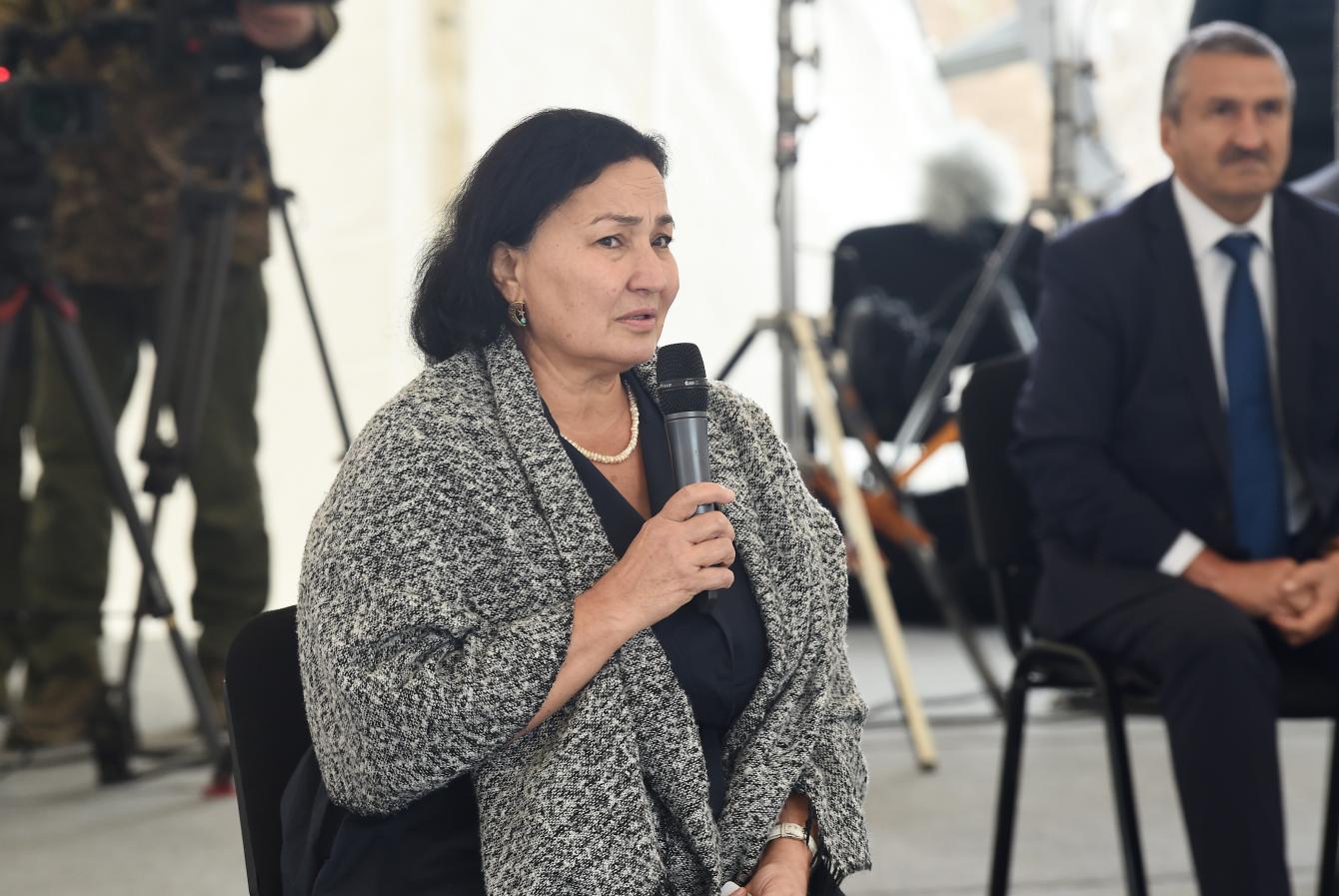
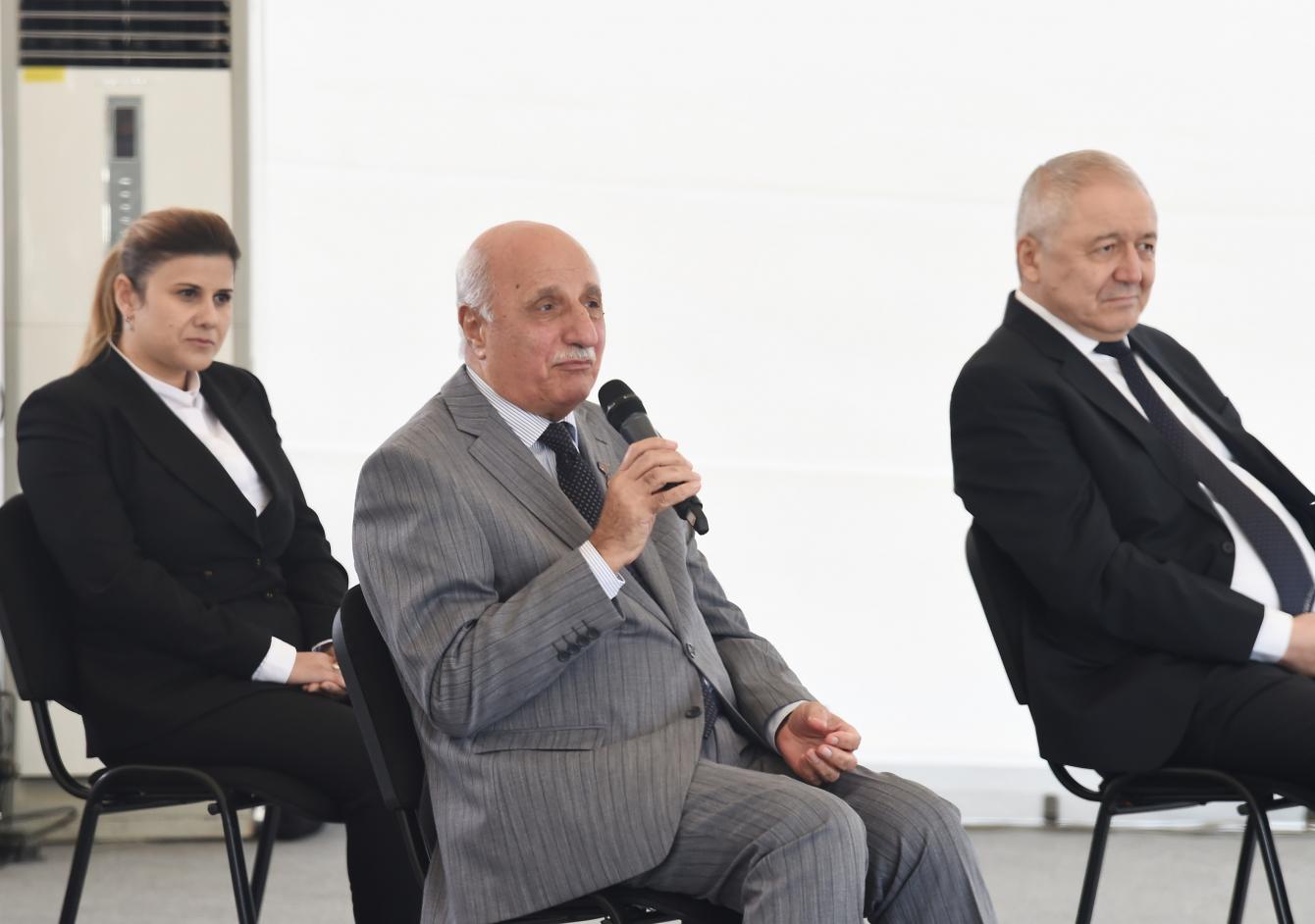
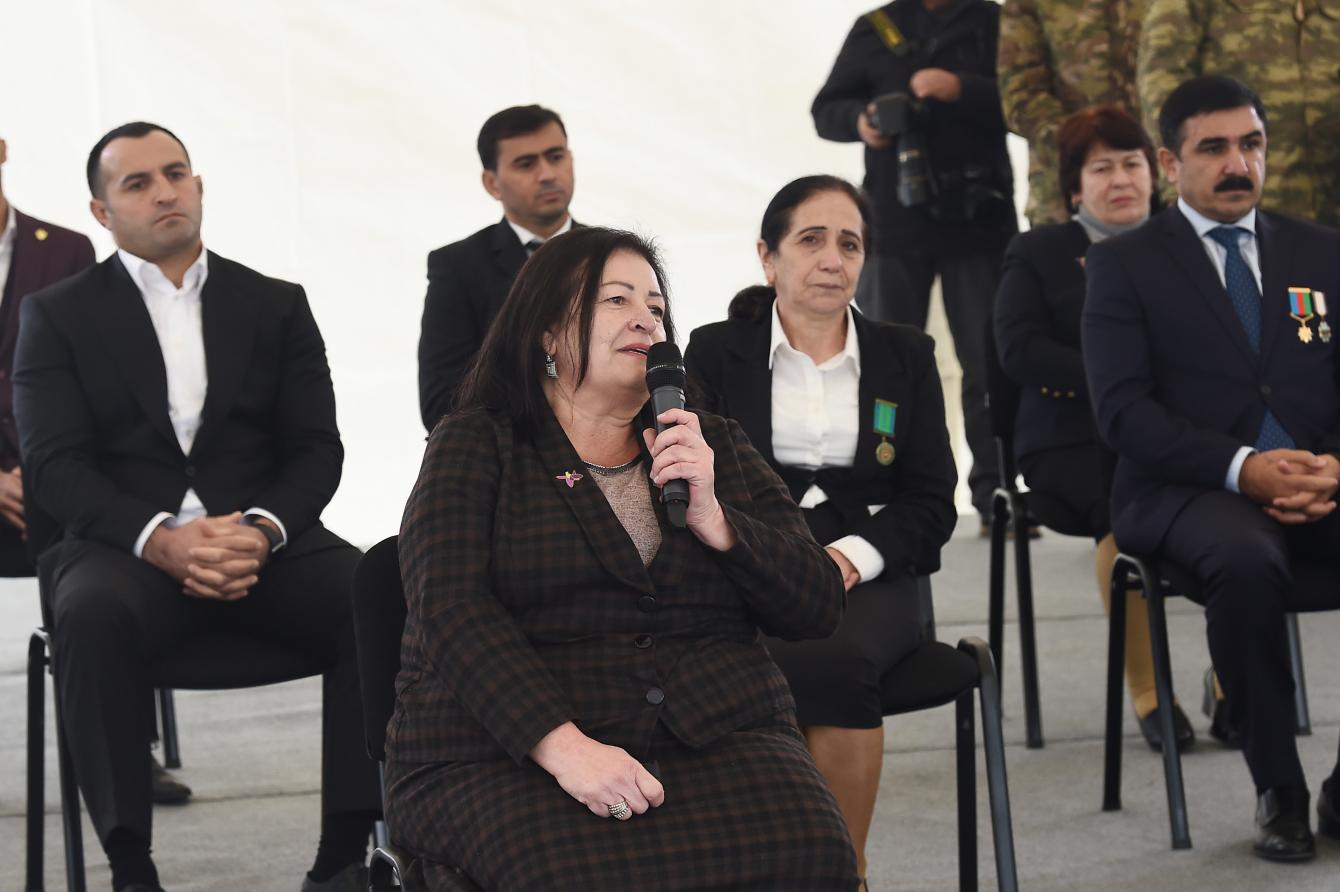
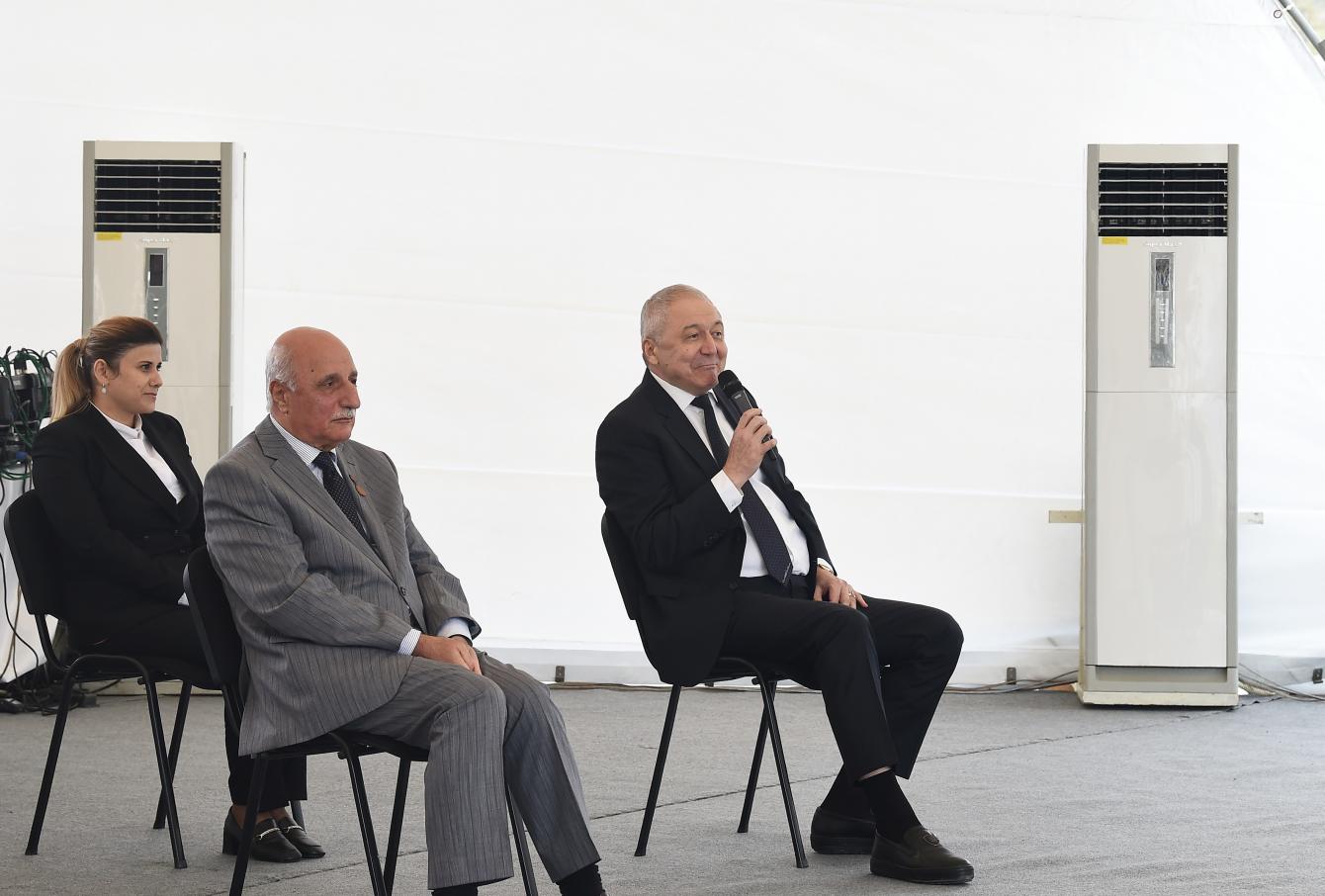
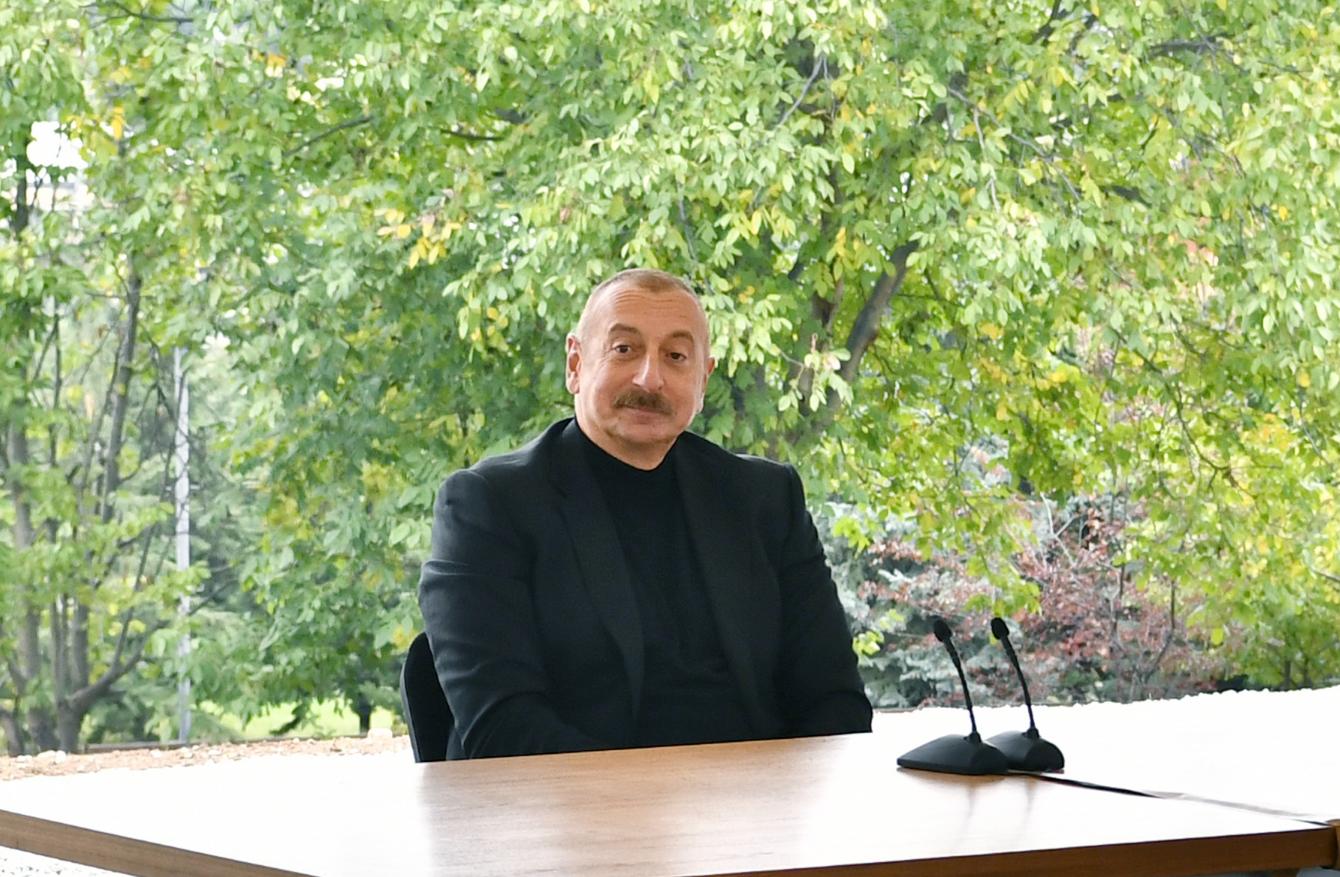
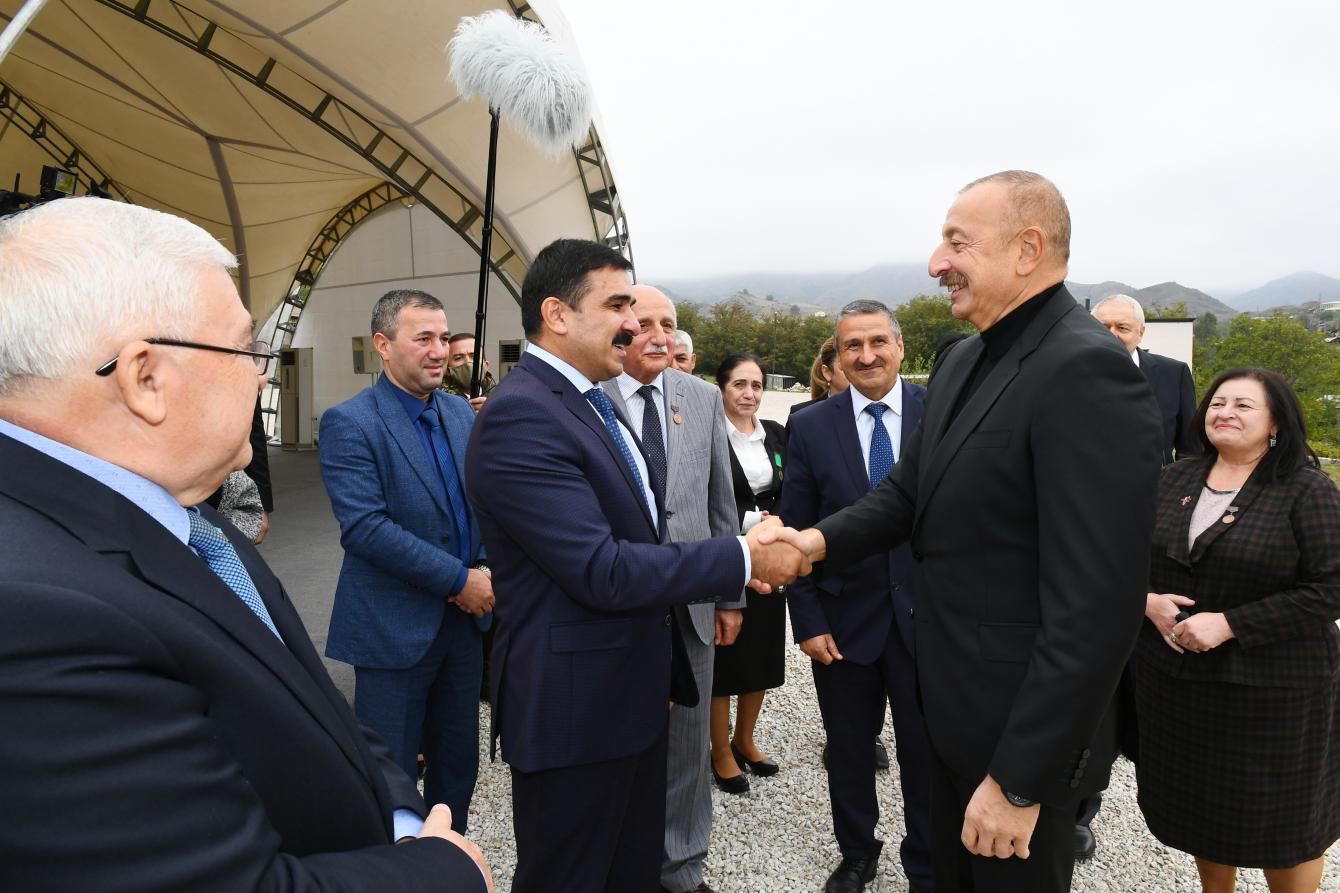
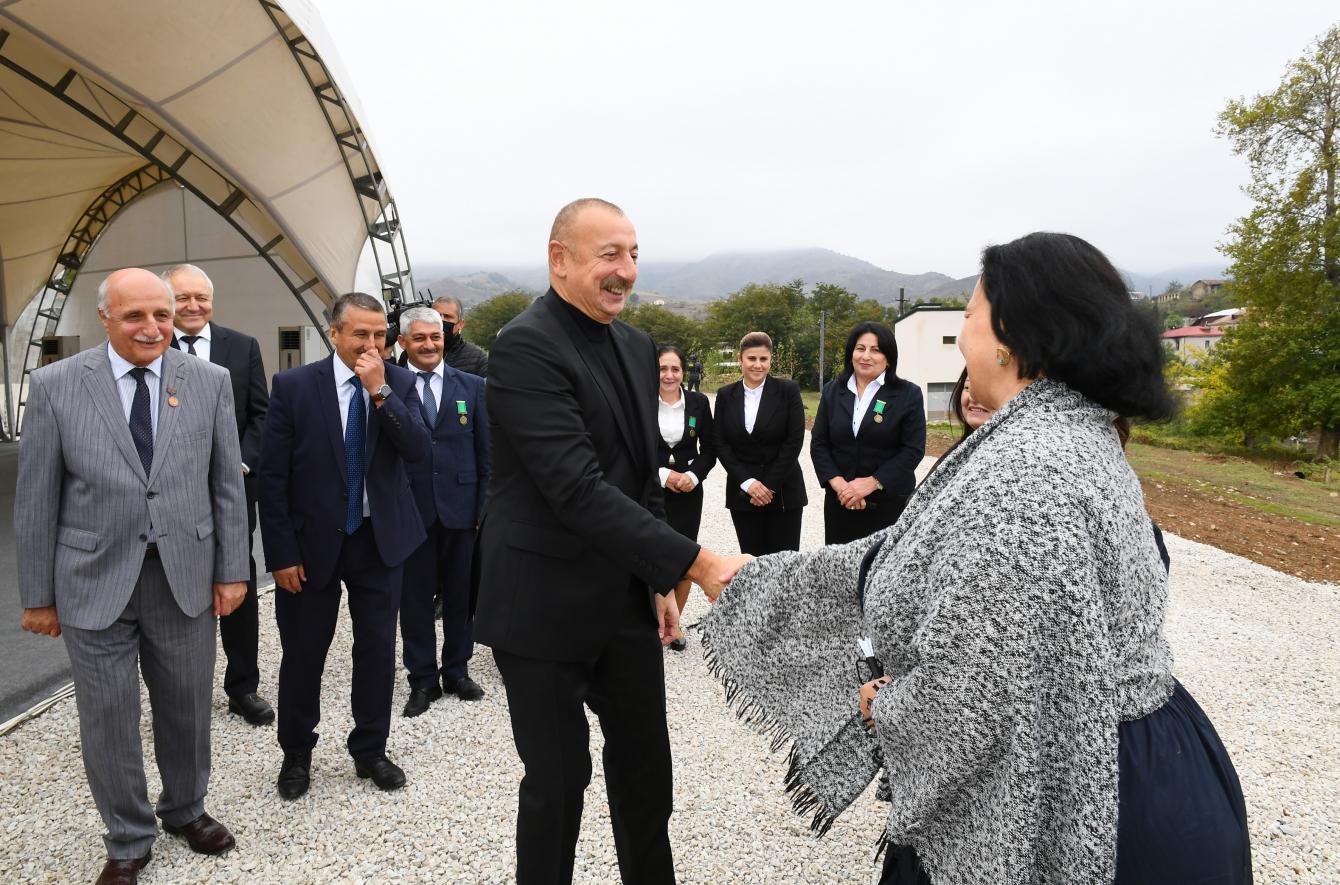
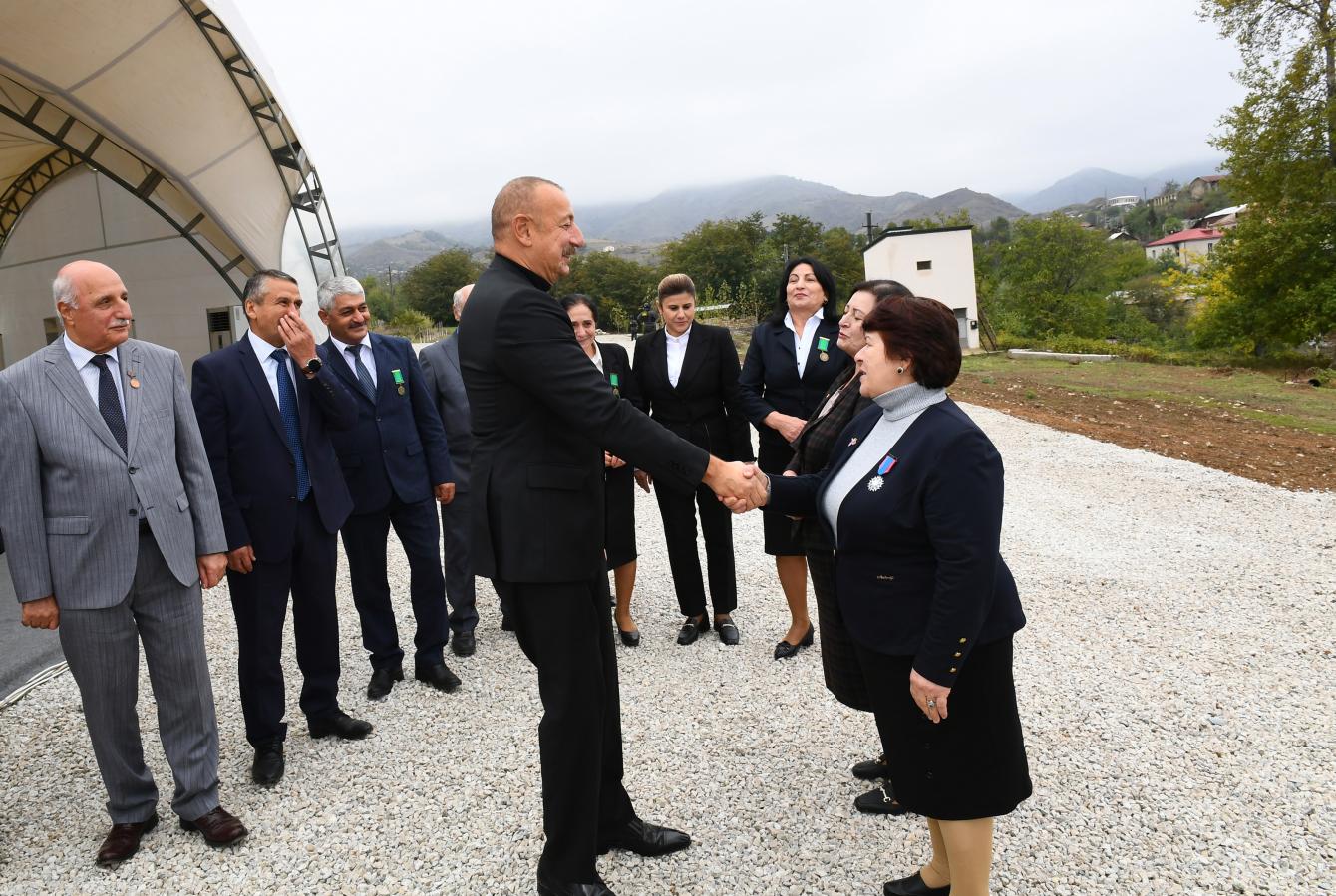

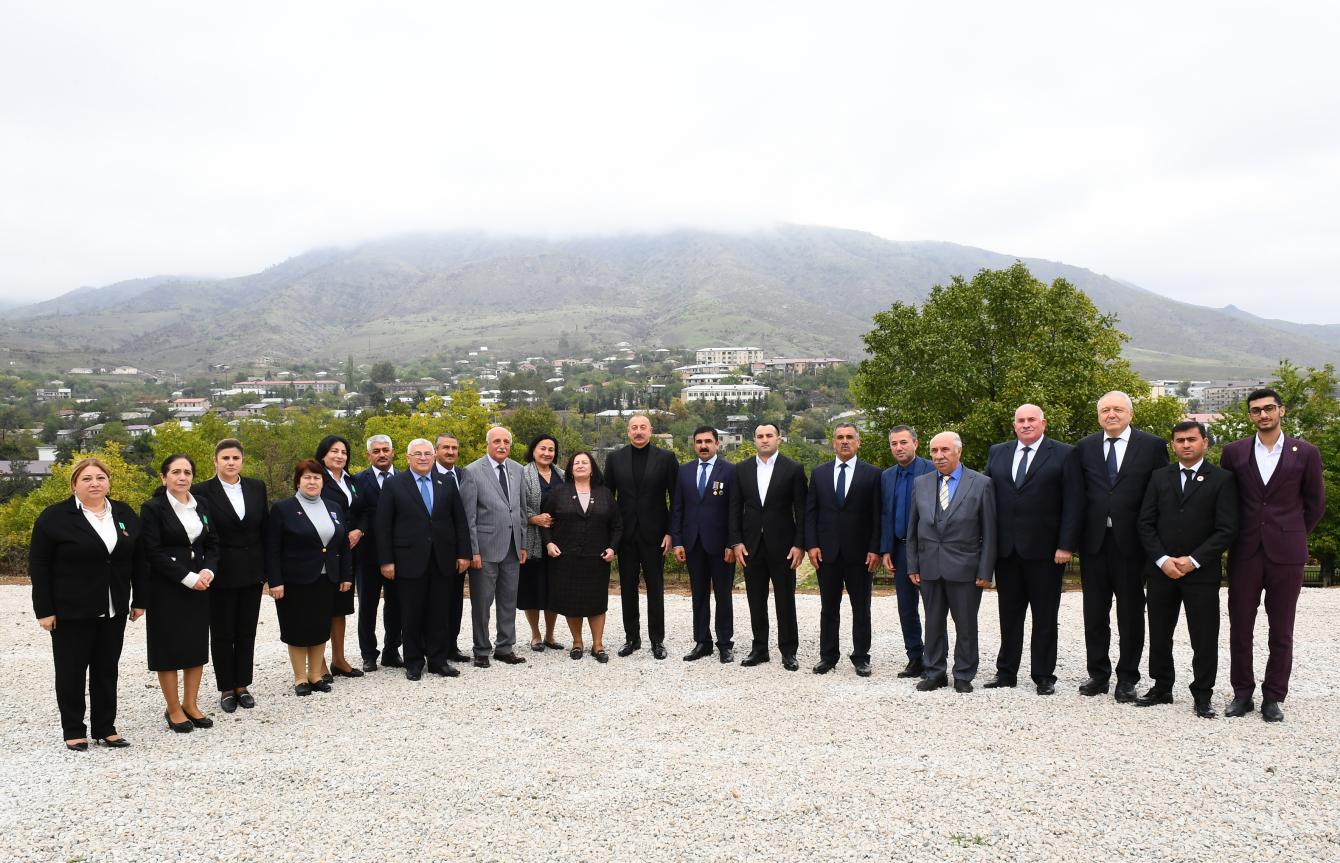
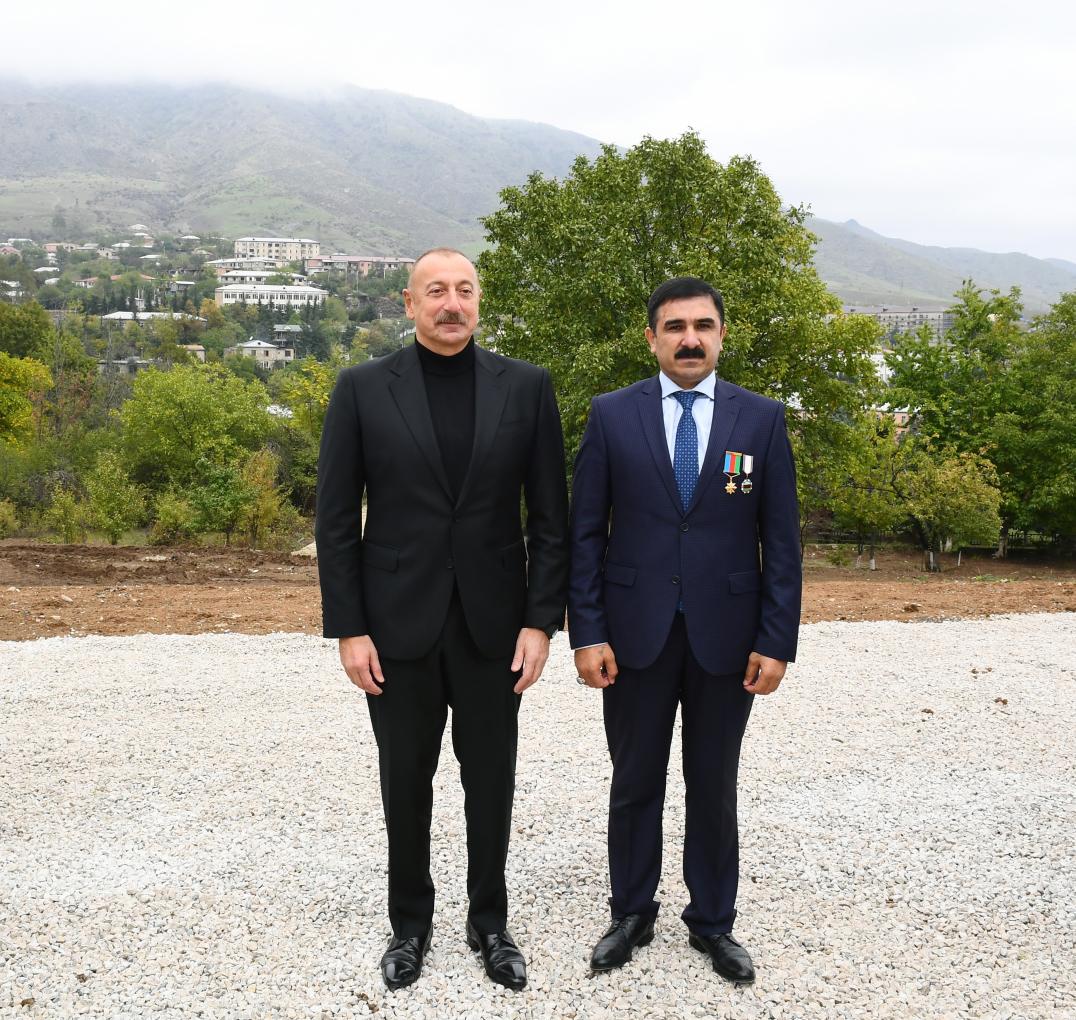
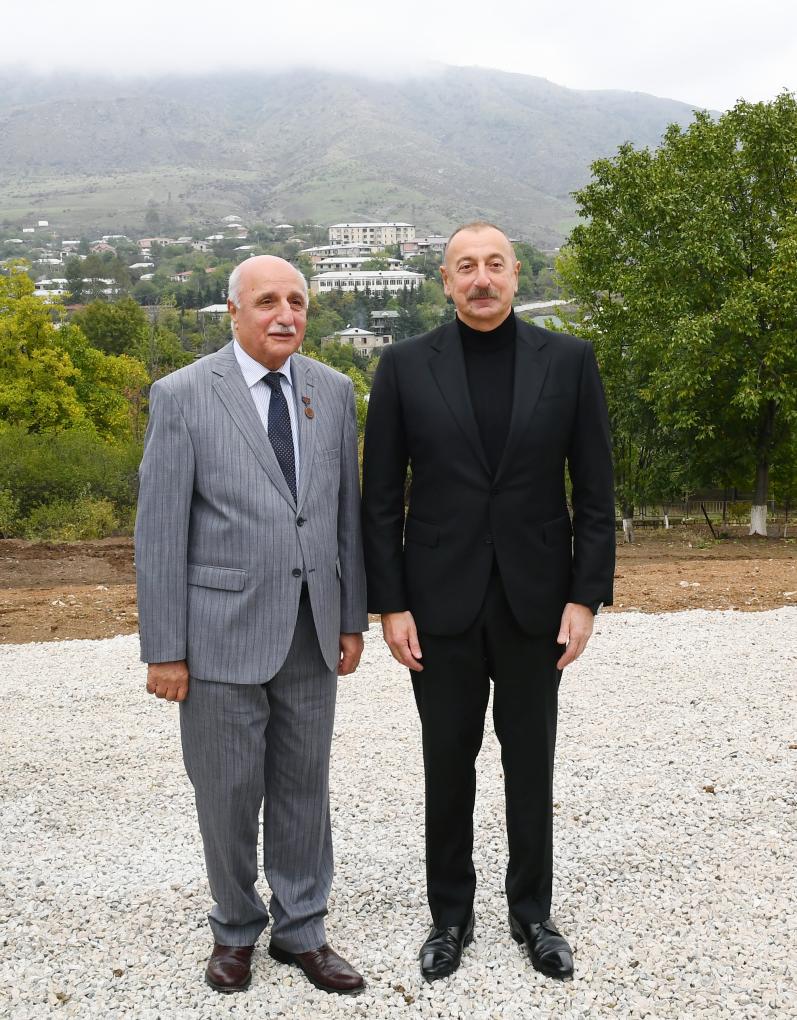
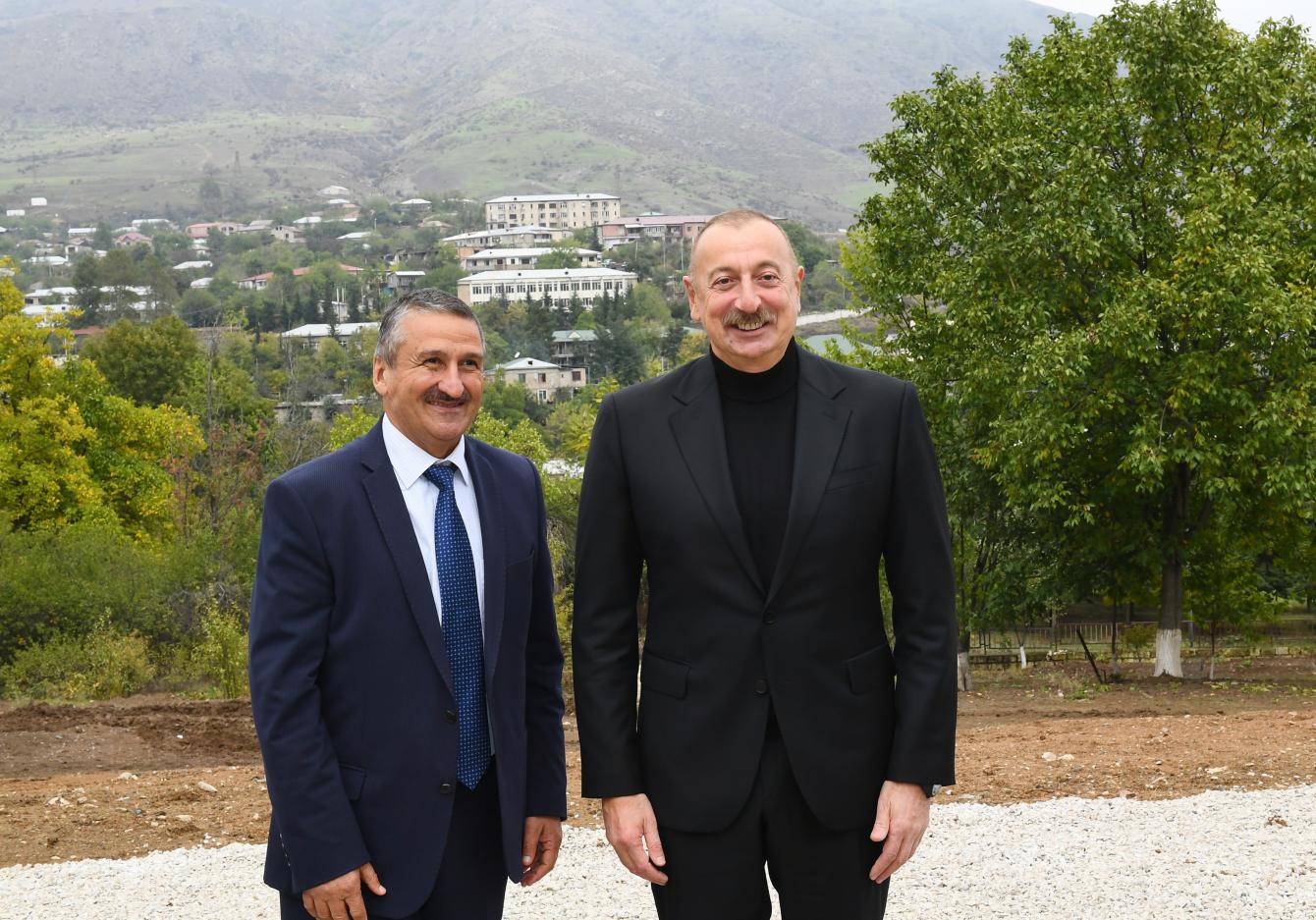
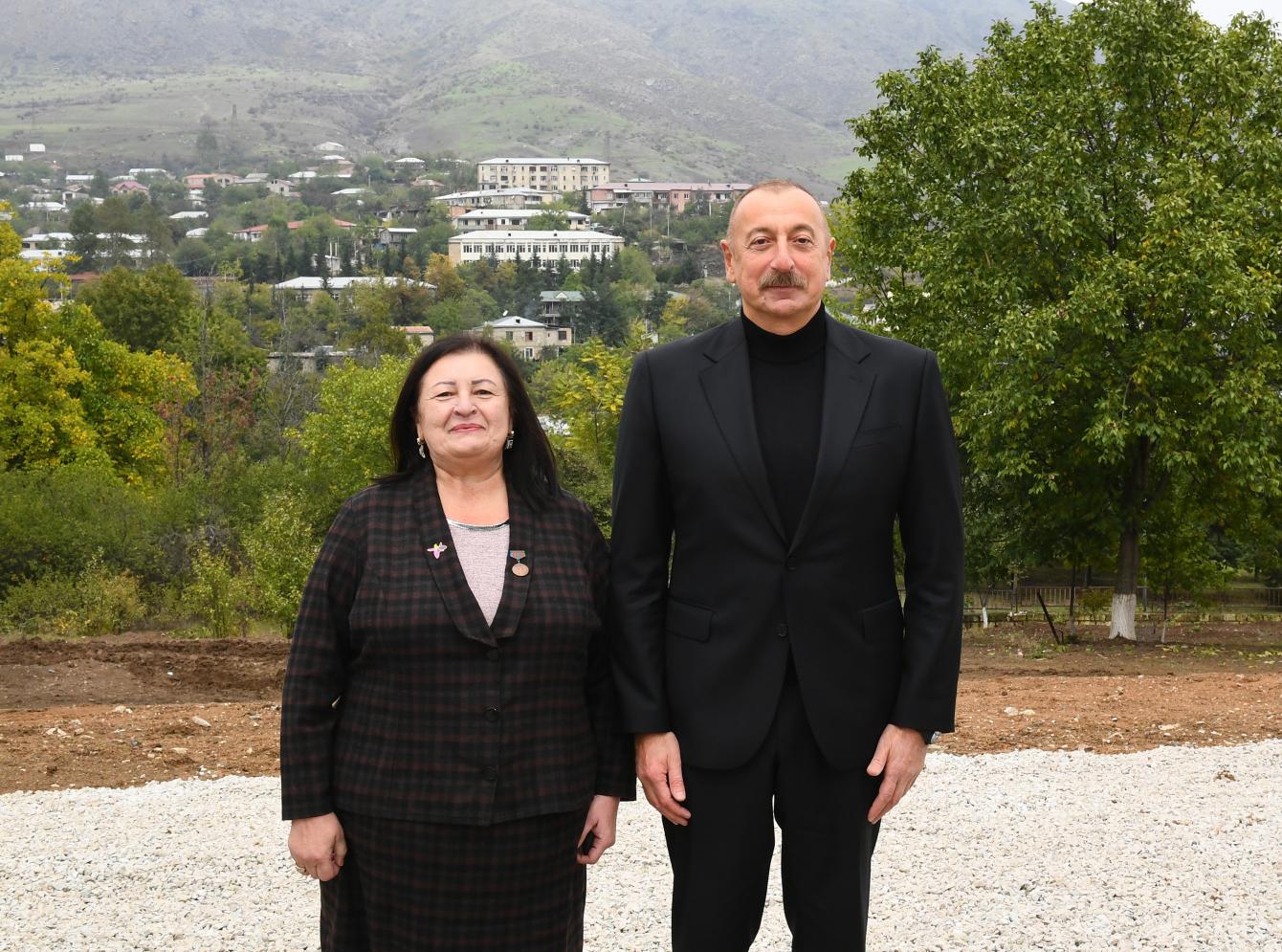
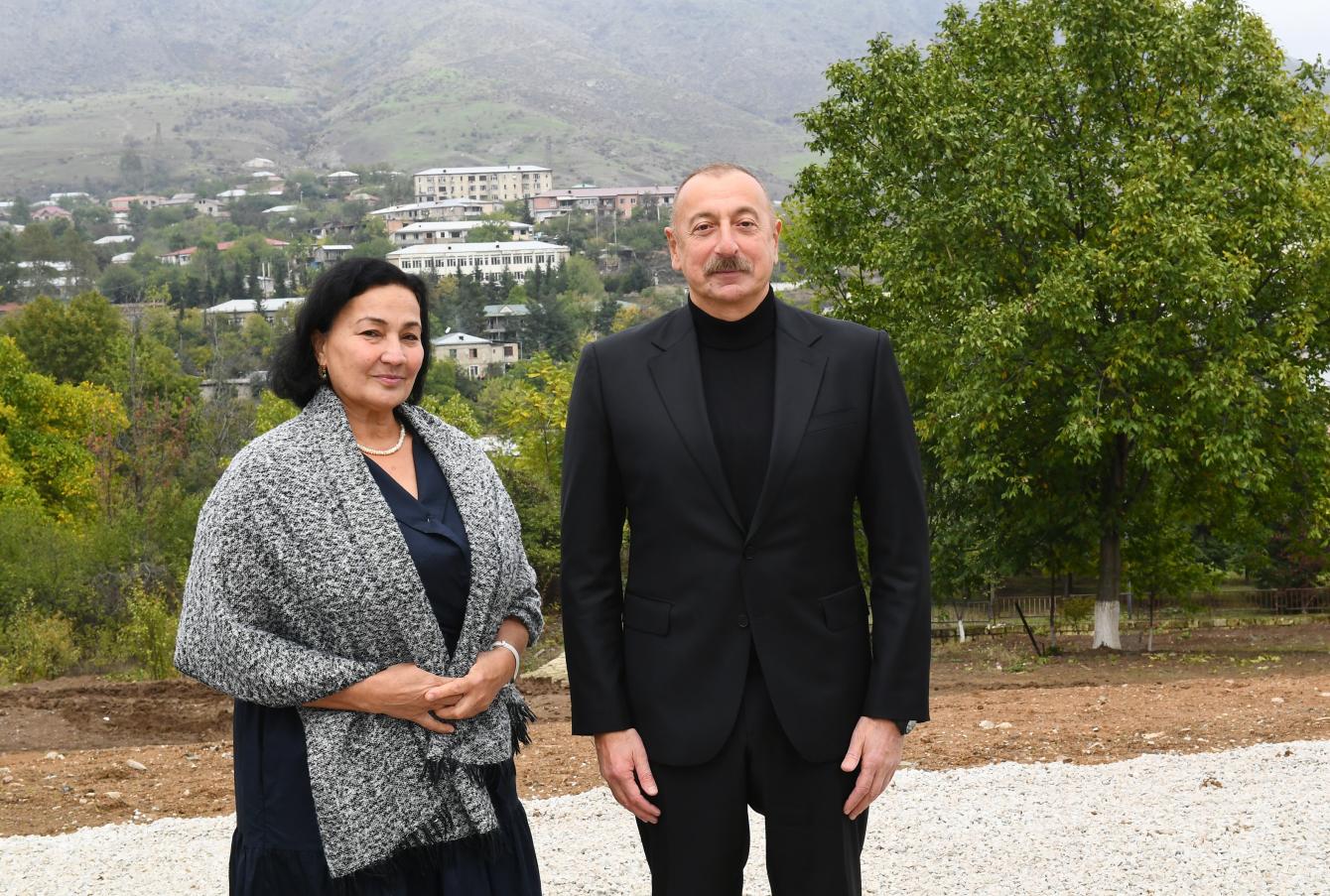
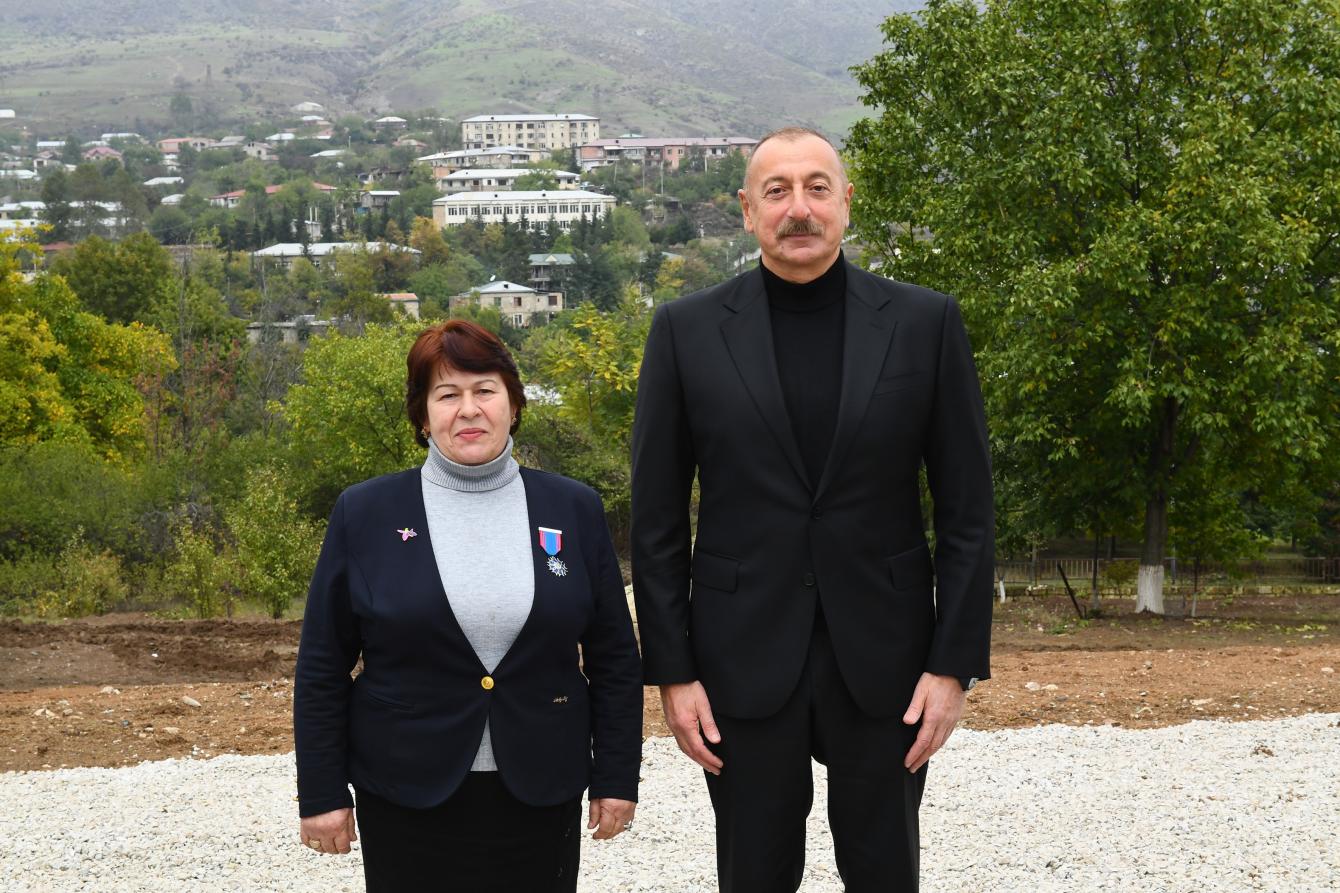
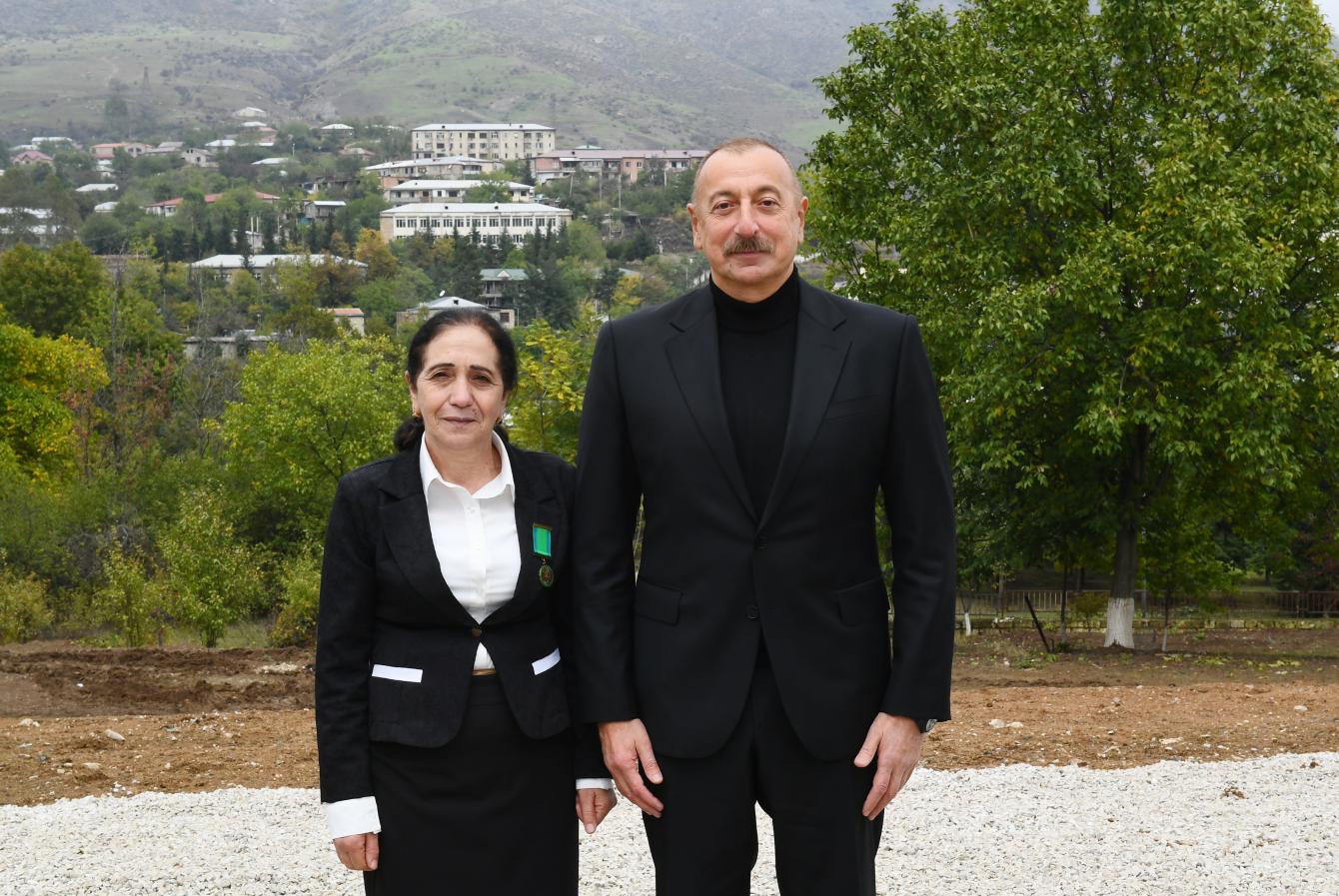
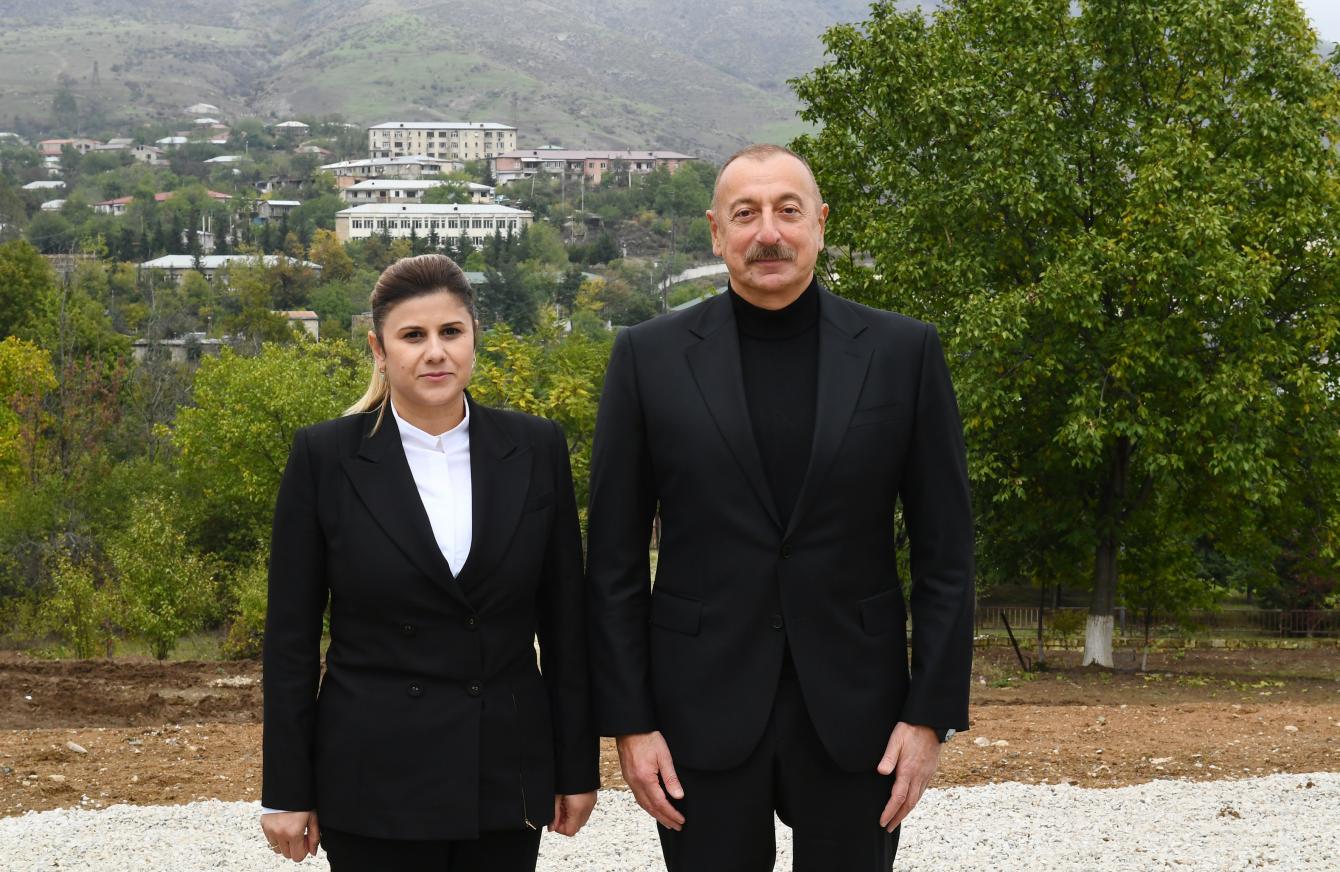
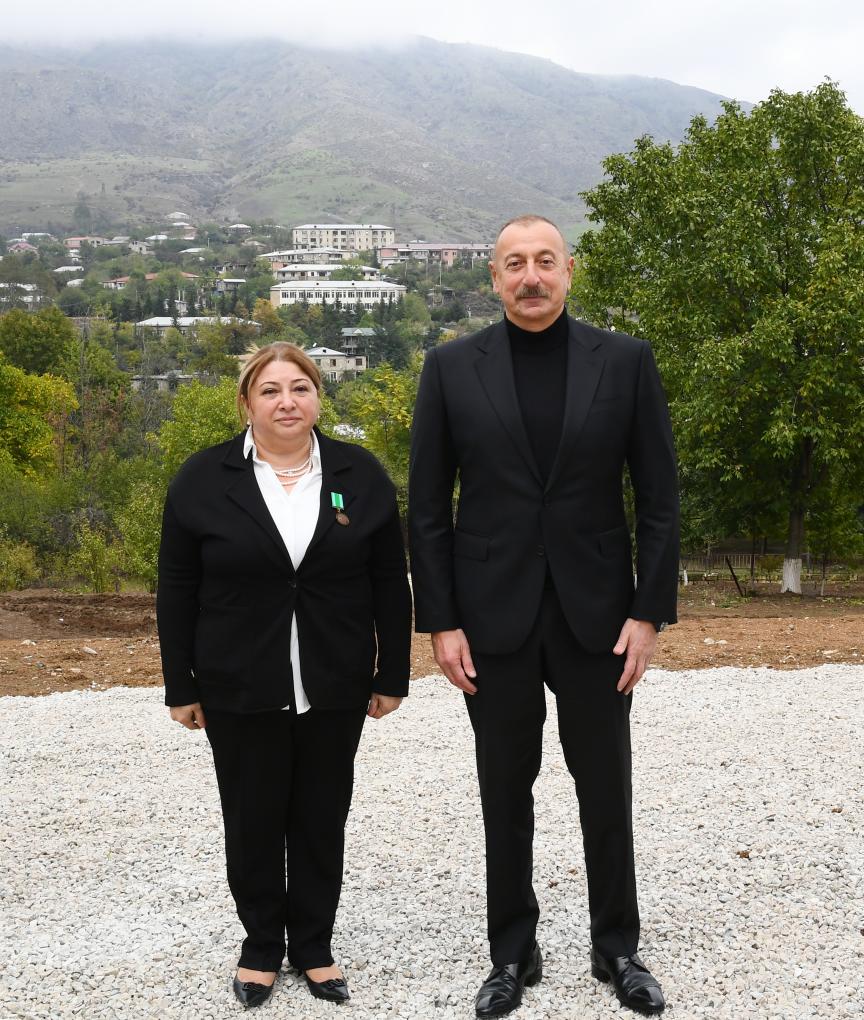
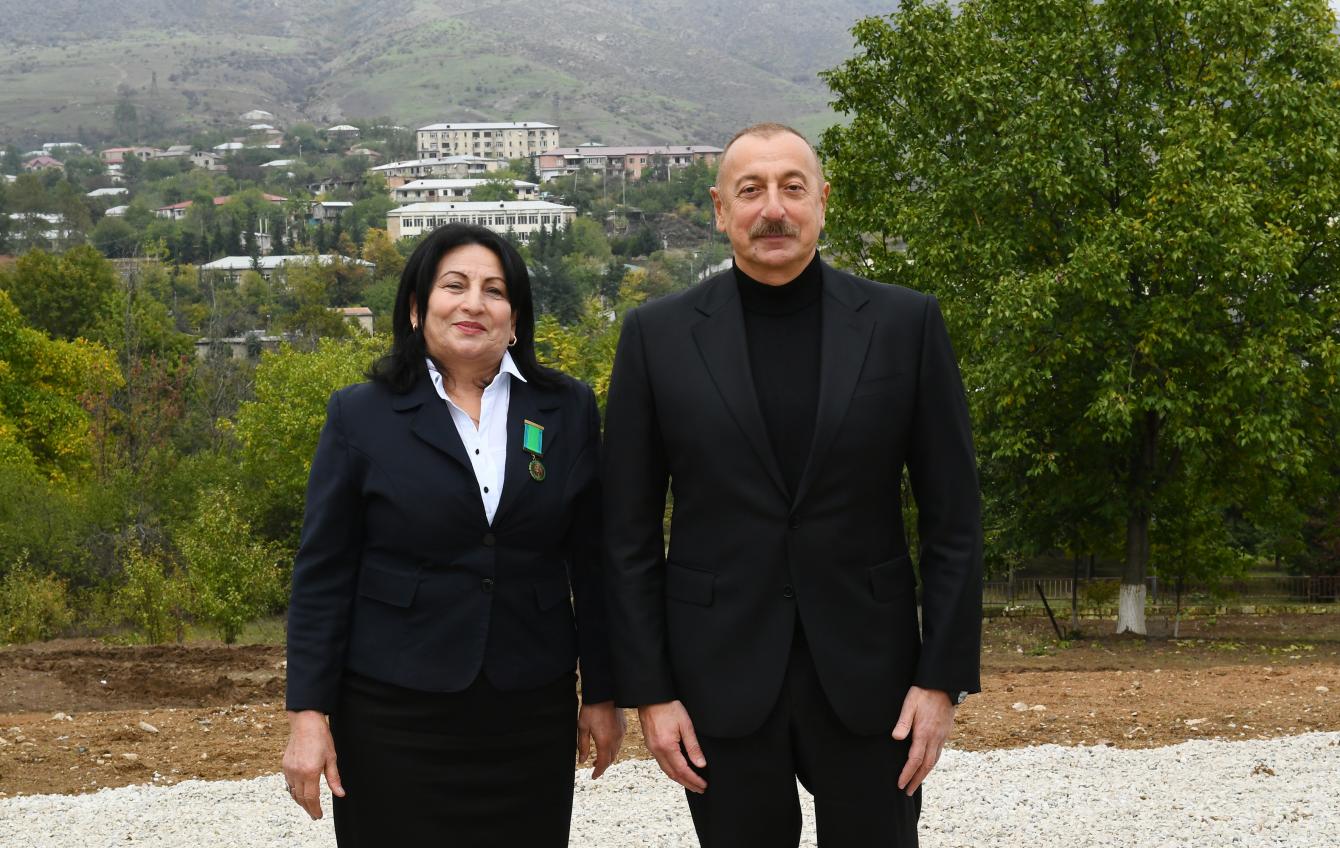
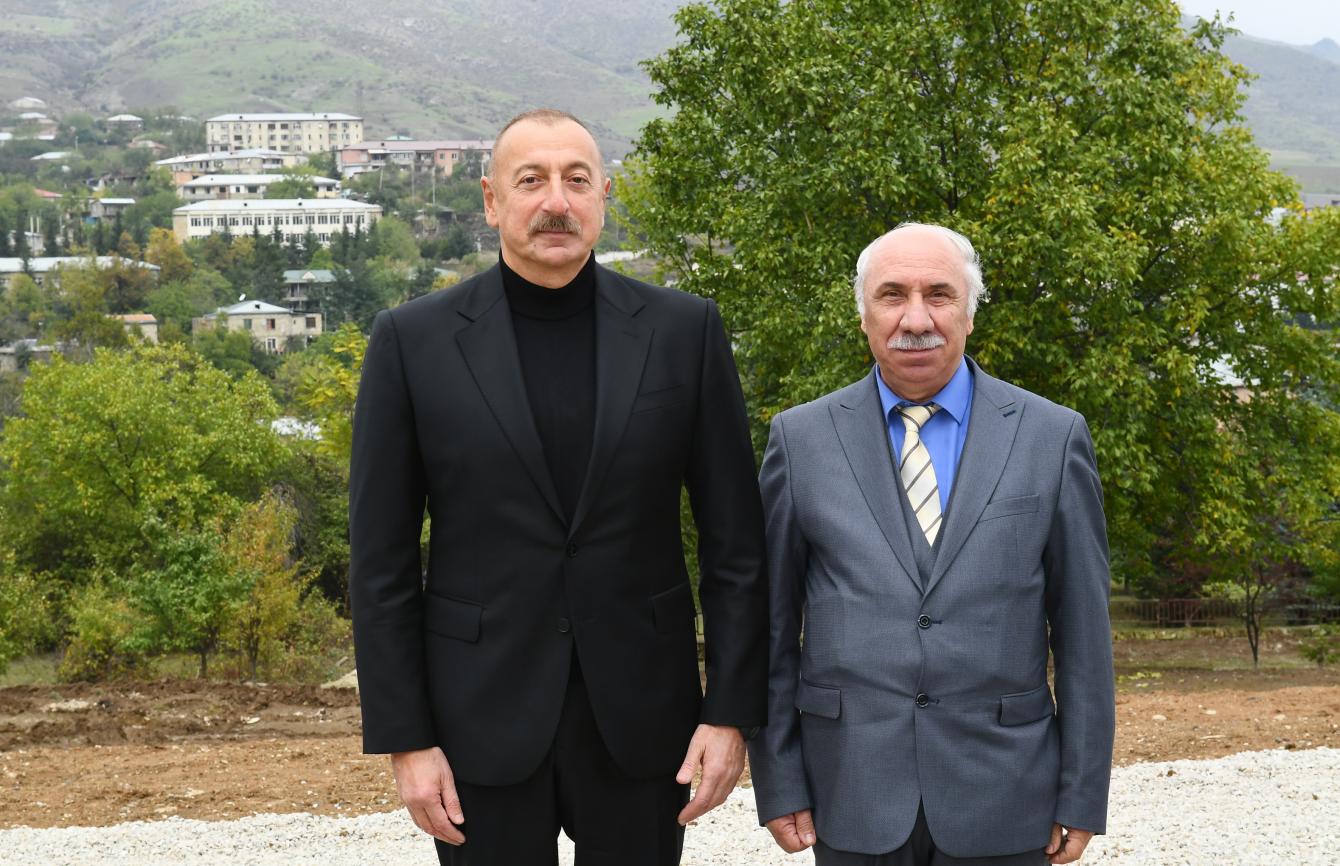
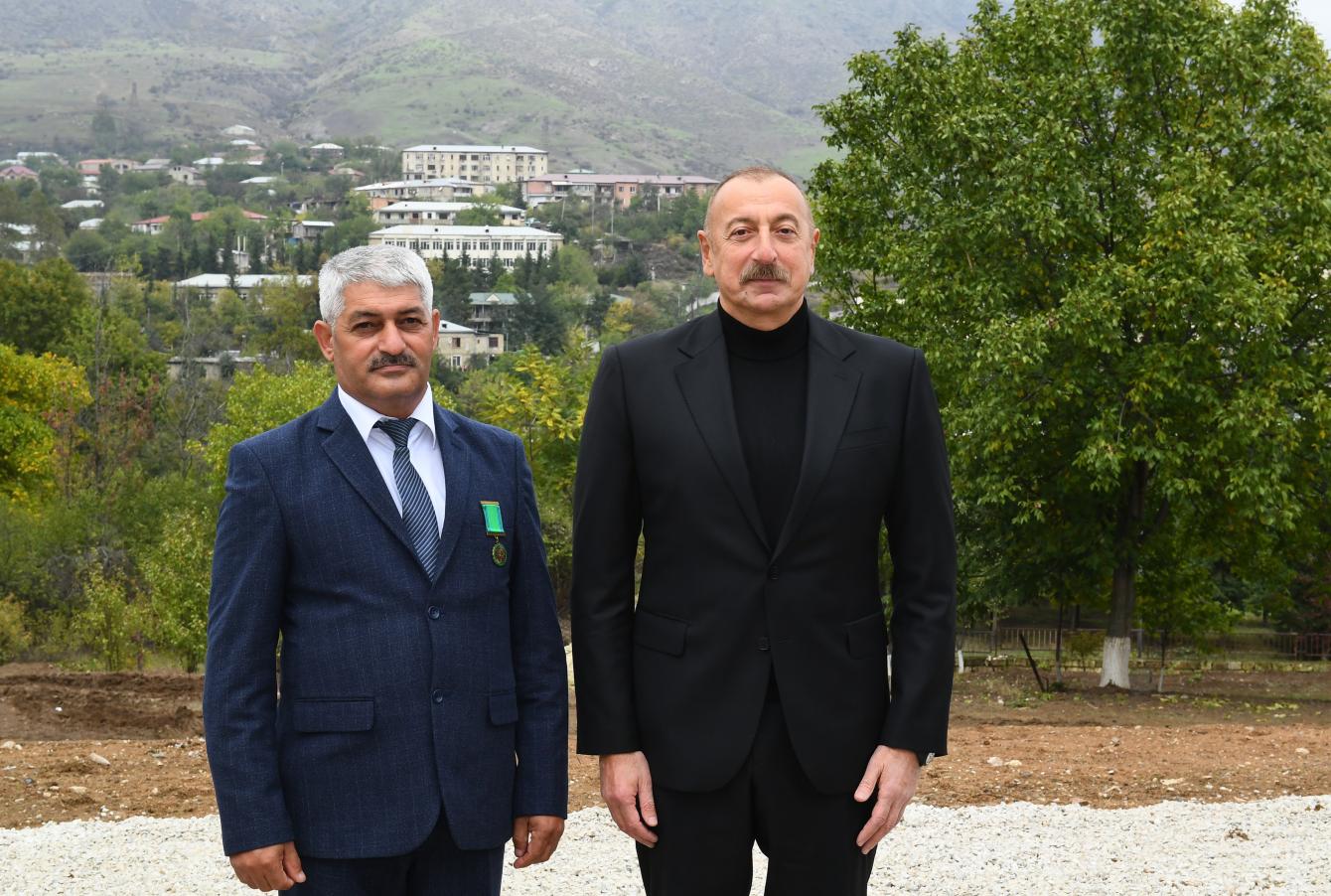
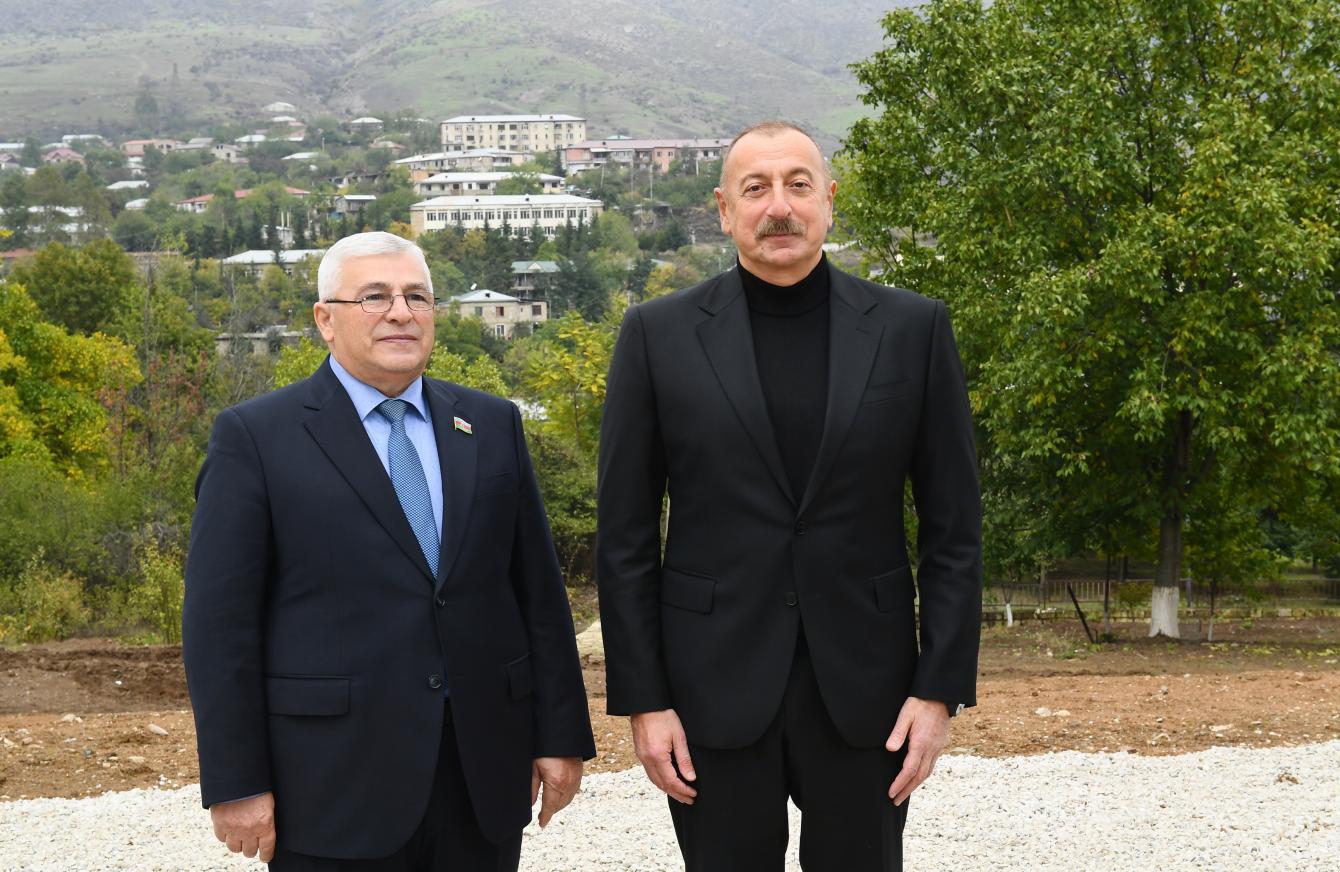
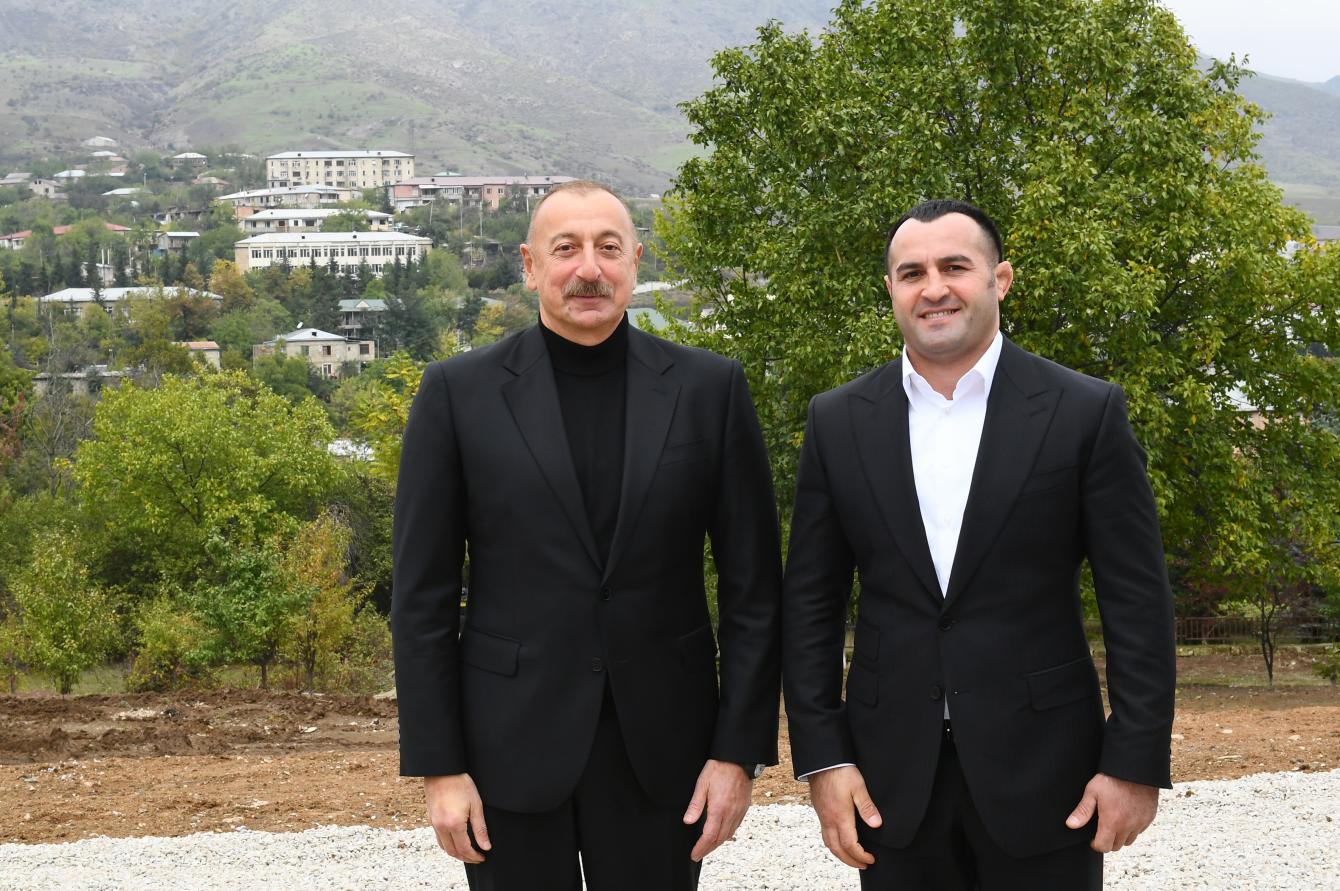
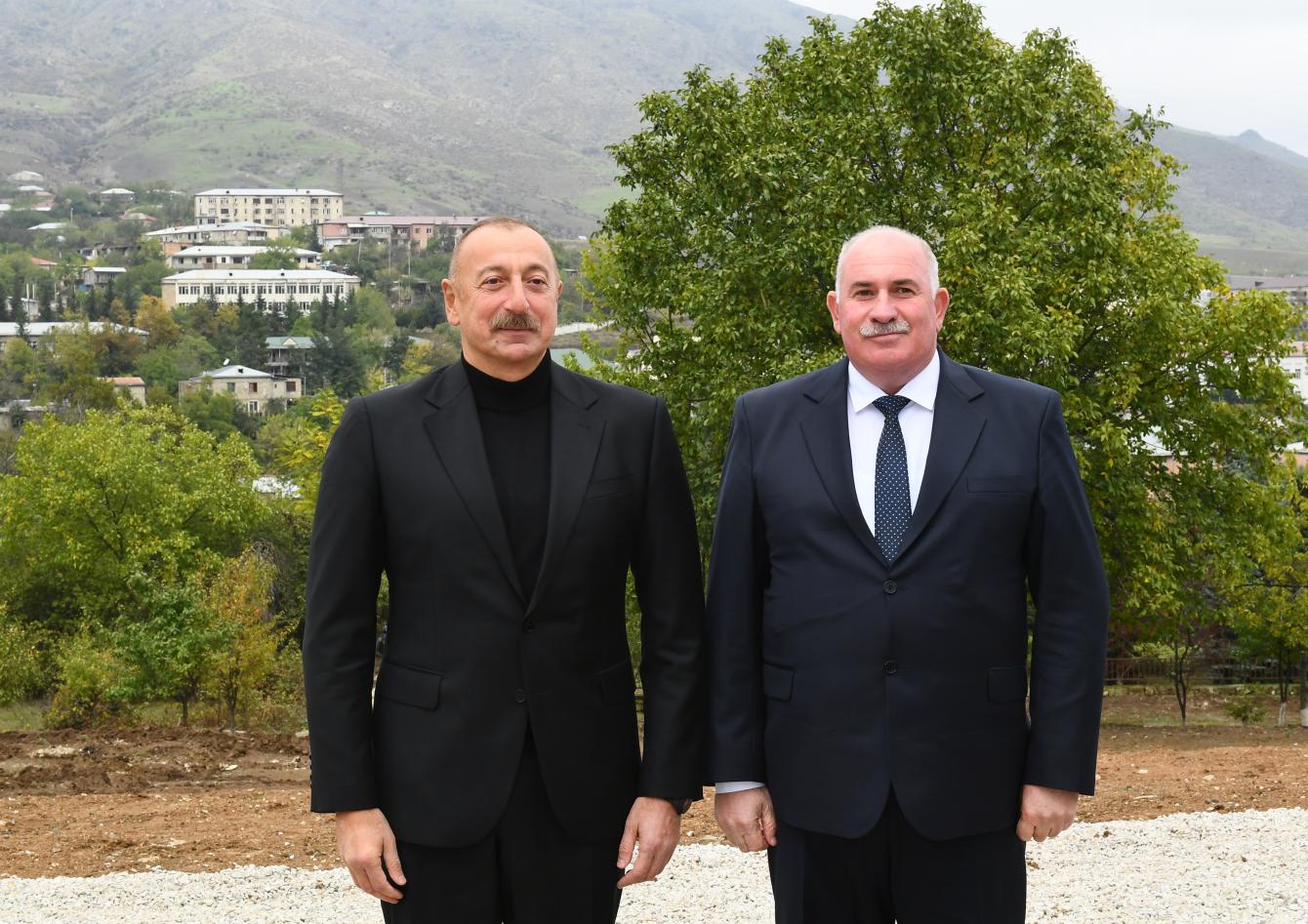
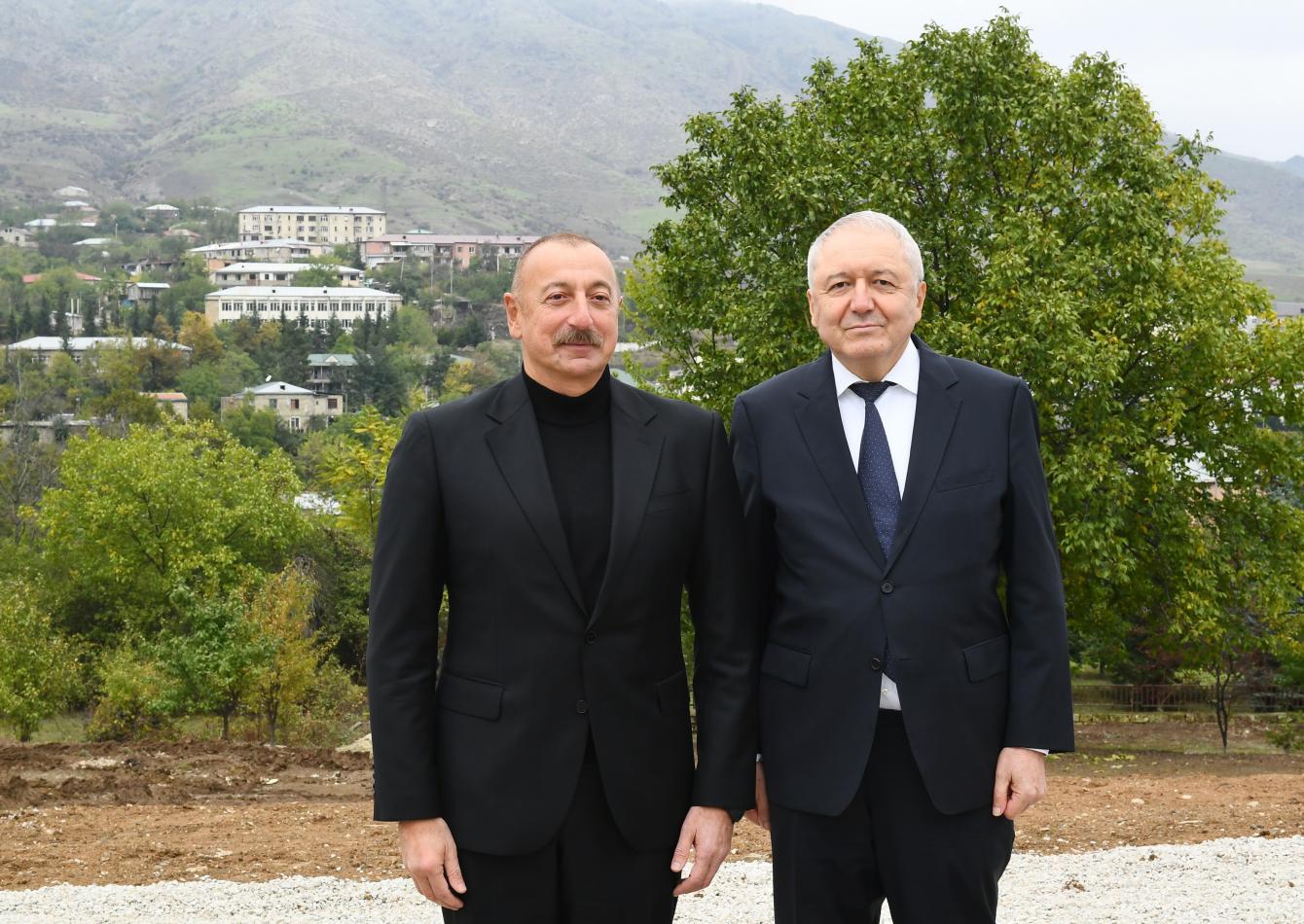
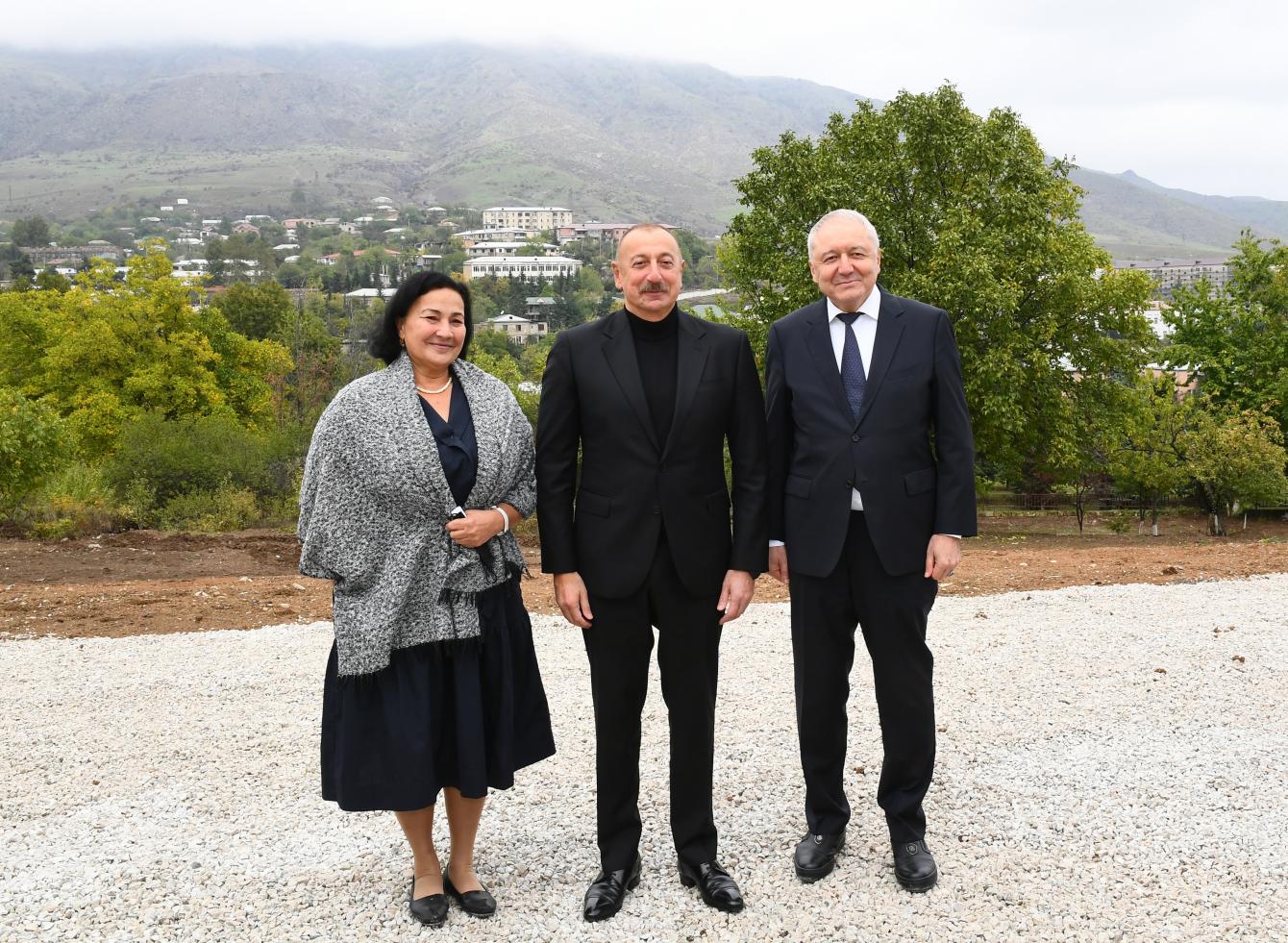
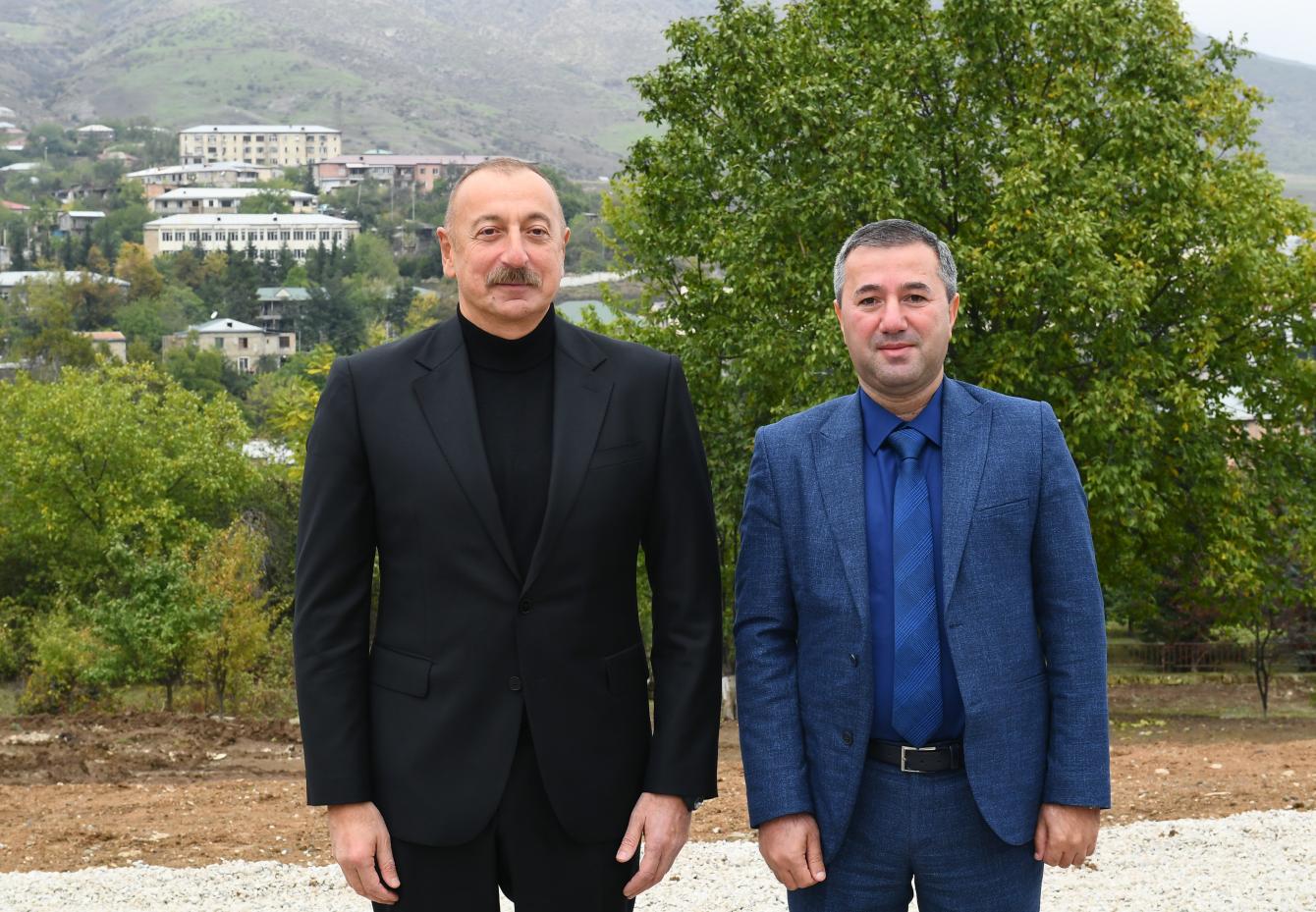
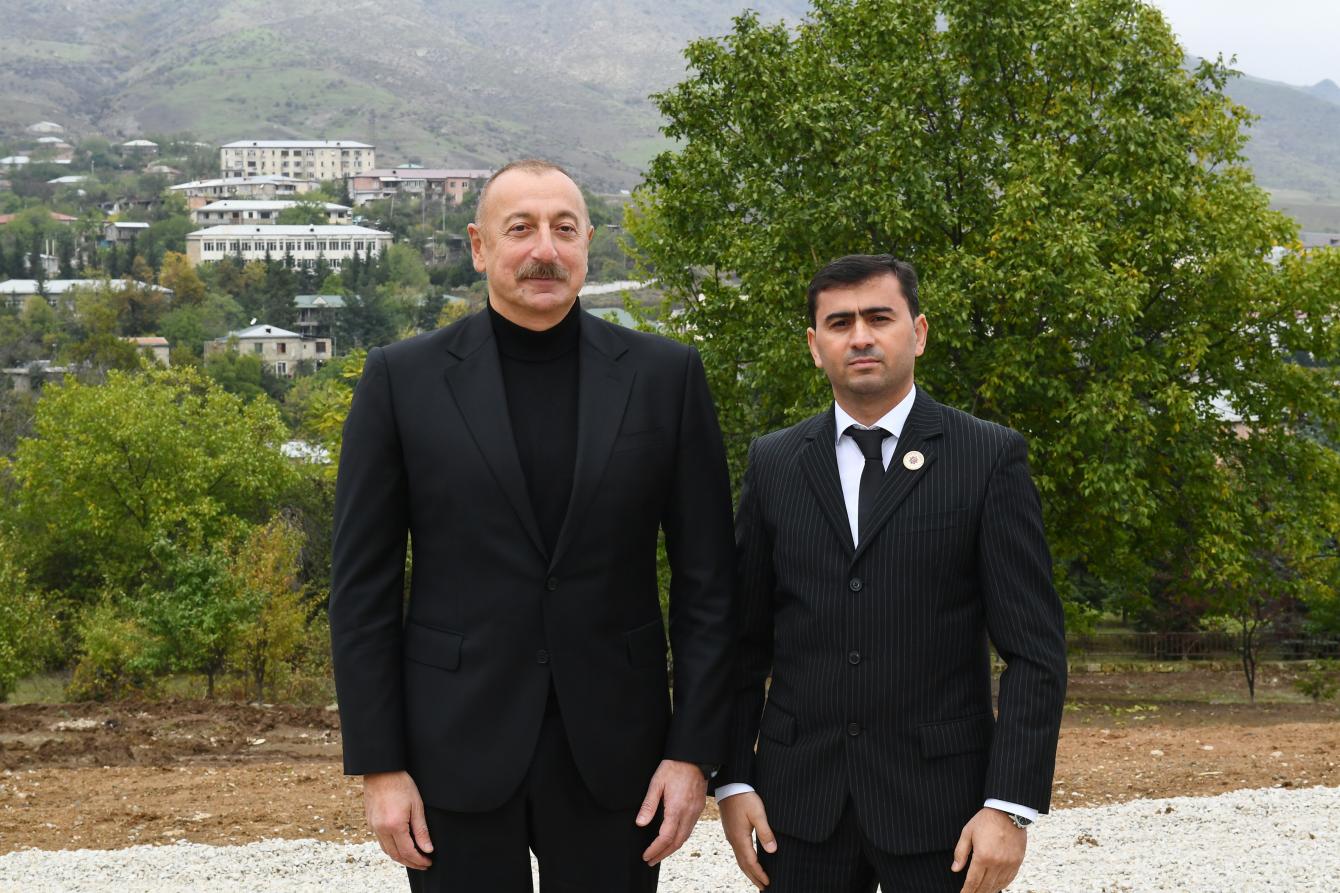
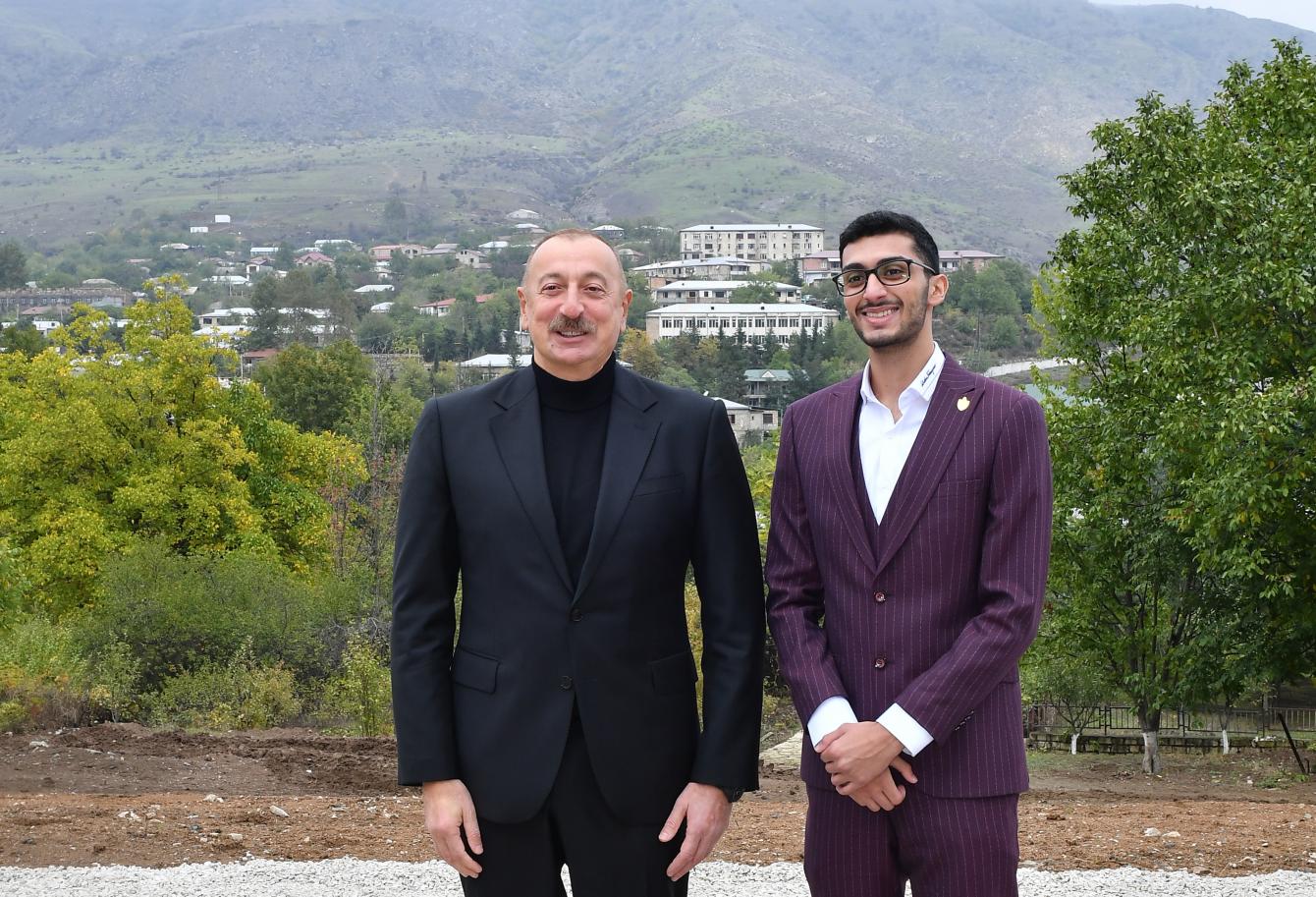
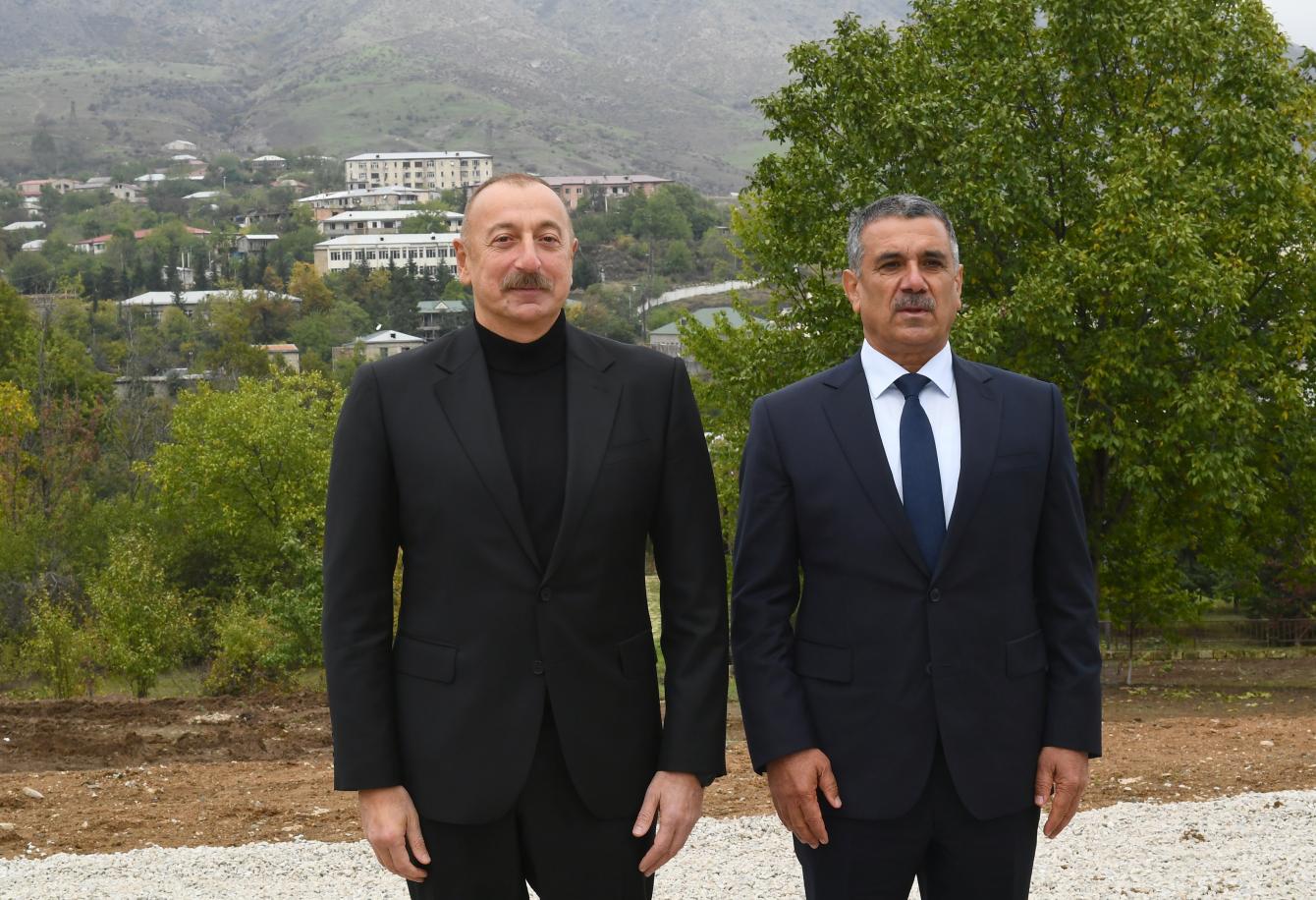
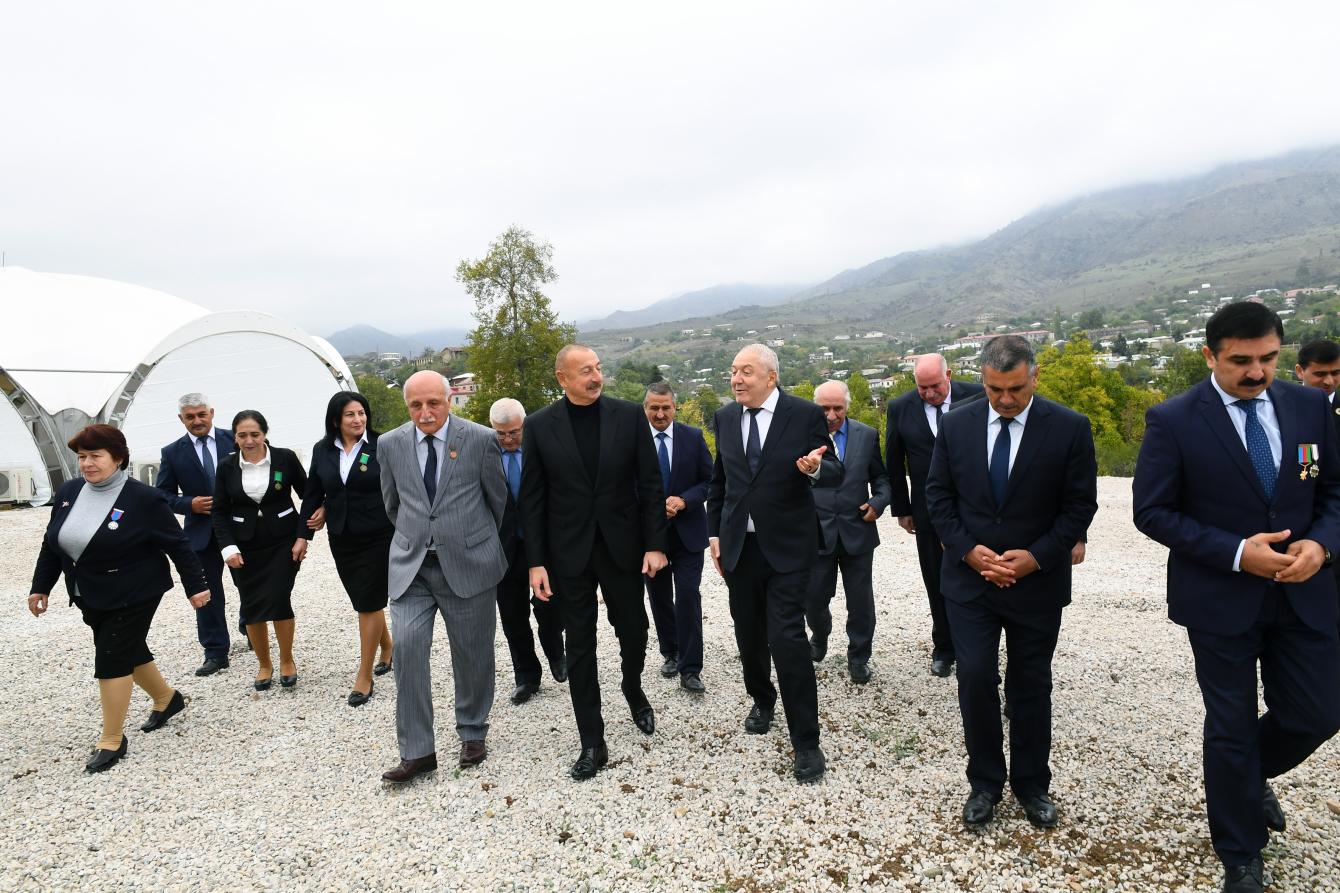
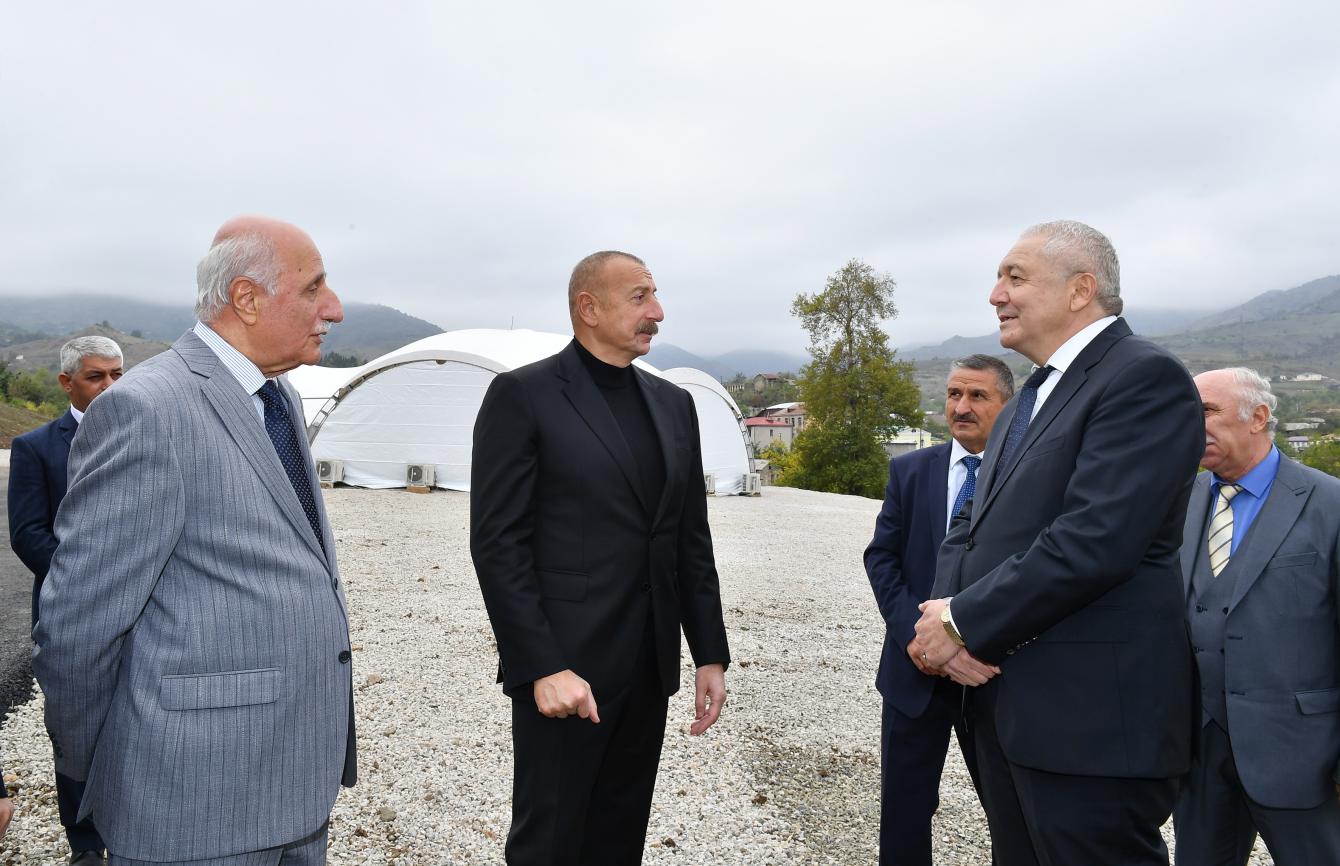

His Excellency Mr. Ilham Aliyev, President of the Republic of Azerbaijan
Dear President Aliyev,
On behalf of the American people, I want to congratulate you and the people of Azerbaijan on your Independence Day.
We value our relationship with the Republic of...
28 May 2025, 17:40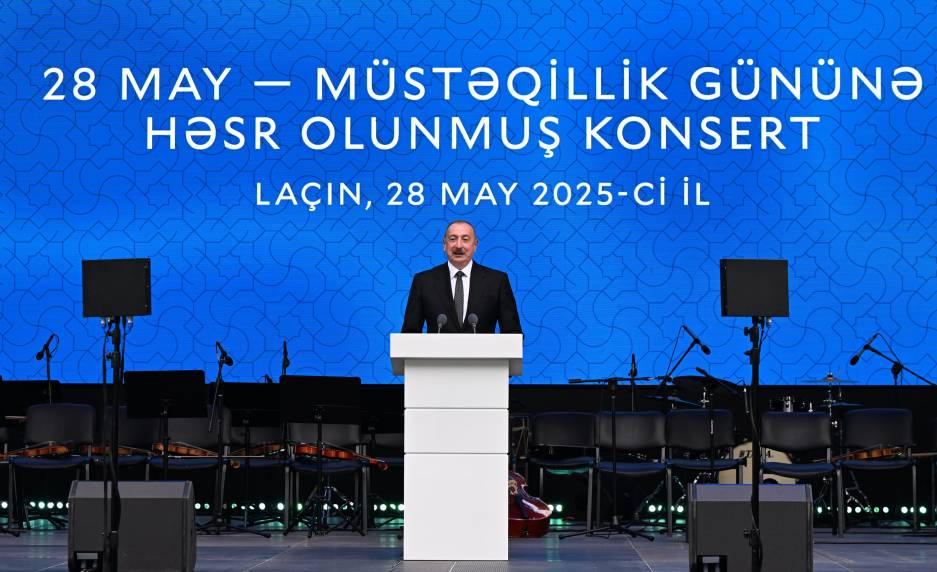
His Excellency Mr. Ilham Aliyev, President of the Republic of Azerbaijan
Dear Mr. President,
On the occasion of Azerbaijan's Independence Day, I extend my warmest congratulations to you and the people of Azerbaijan. I wish your country continued progress,...
28 May 2025, 15:25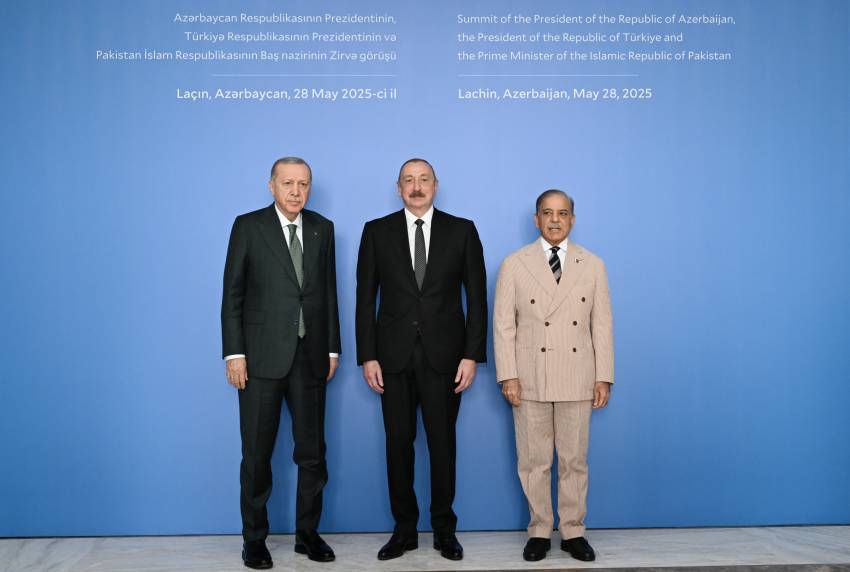
His Excellency Mr. Ilham Aliyev, President of the Republic of Azerbaijan
Your Excellency,
On behalf of the International Secretariat of the Organization for Democracy and Economic Development - GUAM and me personally, I would like to extend our most sincere...
28 May 2025, 13:58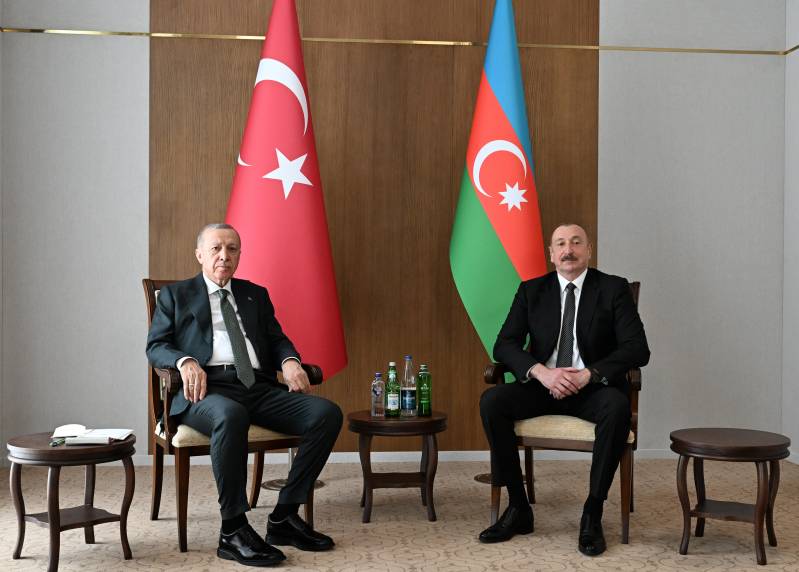
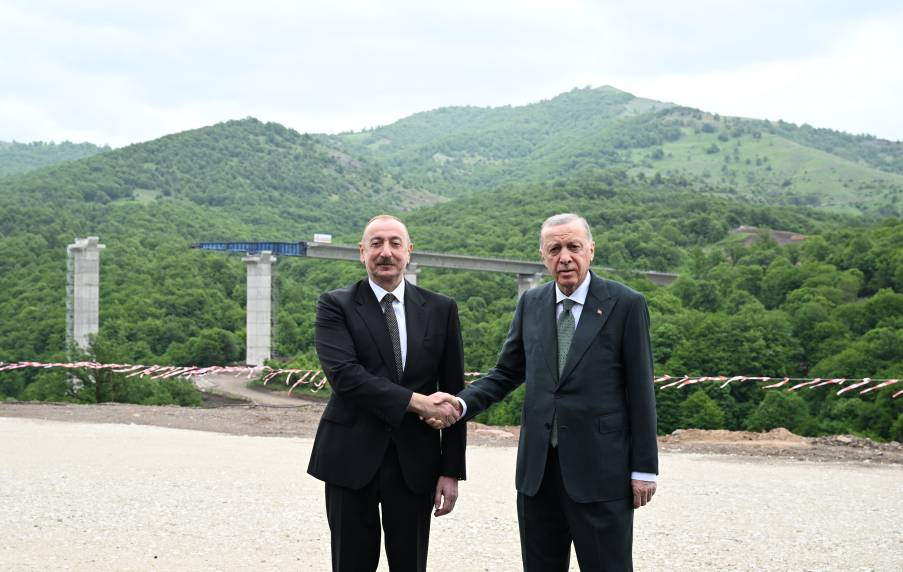
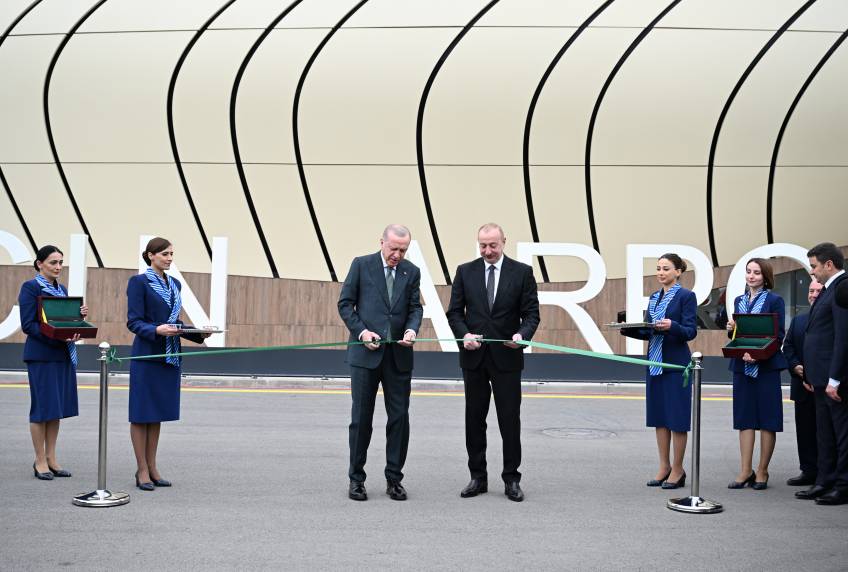
His Excellency Mr. Ilham Aliyev, President of the Republic of Azerbaijan
Dear Mr. President,
On the occasion of the National Day of Azerbaijan, it is with sincere joy that I send Your Excellency, on behalf of the Portuguese people and myself, greetings and wishes of...
27 May 2025, 19:55His Excellency Mr. Ilham Aliyev, President of the Republic of Azerbaijan
Your Excellency, dear friend,
On behalf of the Presidency of Bosnia and Herzegovina and in my personal capacity, I extend to you my heartfelt congratulations on the occasion of May 28 –...
27 May 2025, 19:53His Excellency Mr. Ilham Aliyev, President of the Republic of Azerbaijan
Excellency and dear brother,
As the Republic of Azerbaijan celebrates its National Day, I am pleased to convey to you my sincerest congratulations, wishing your esteemed person continued good...
27 May 2025, 19:51